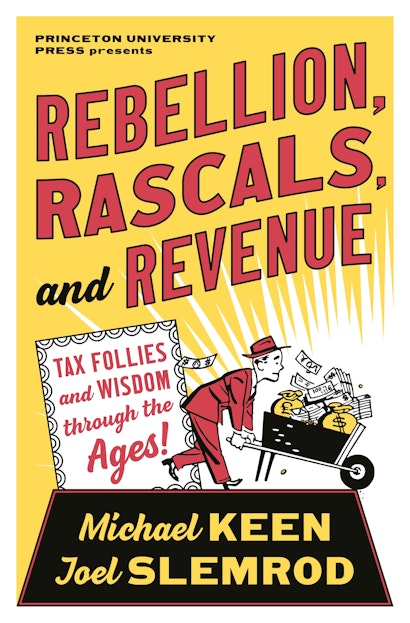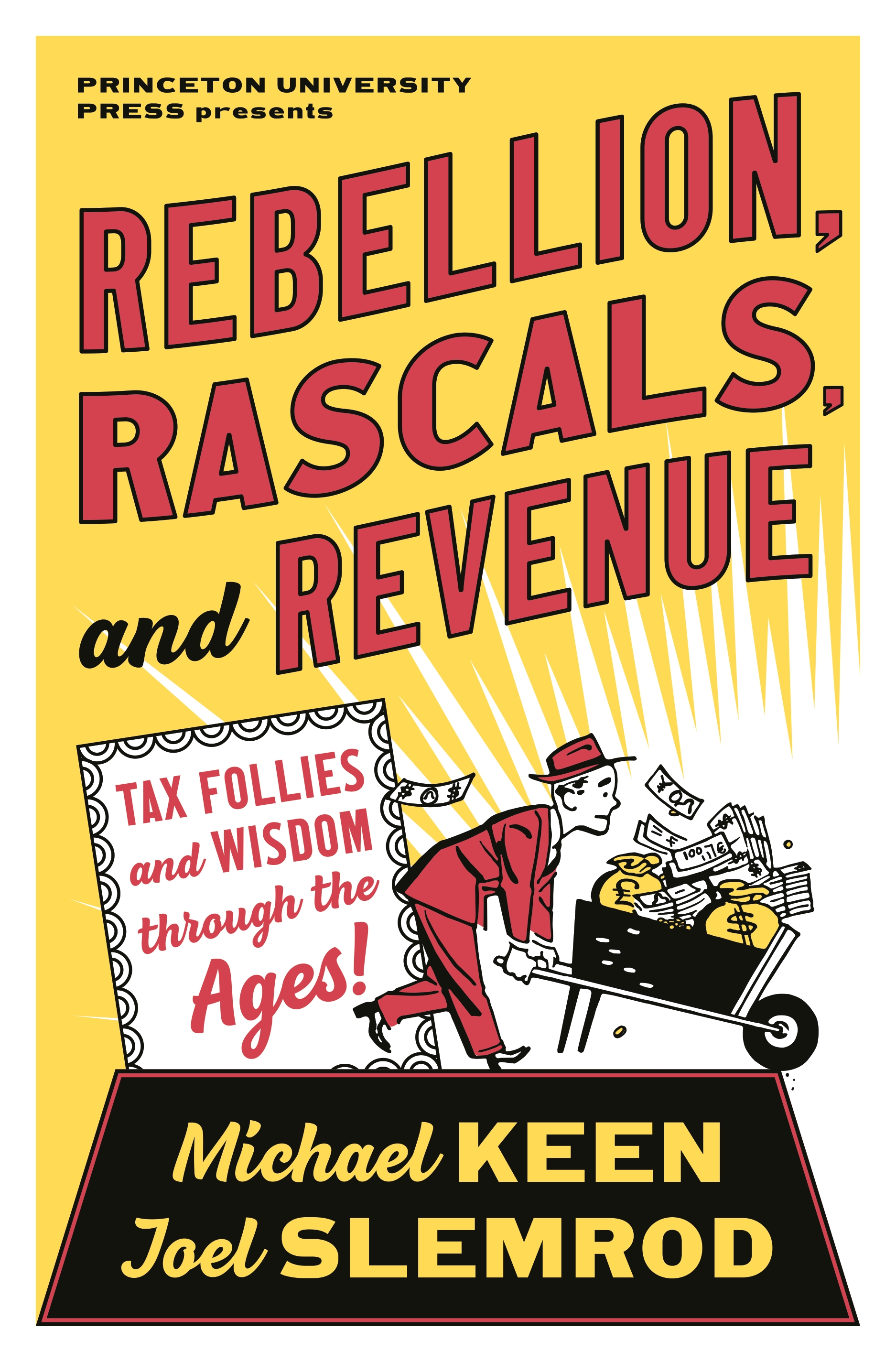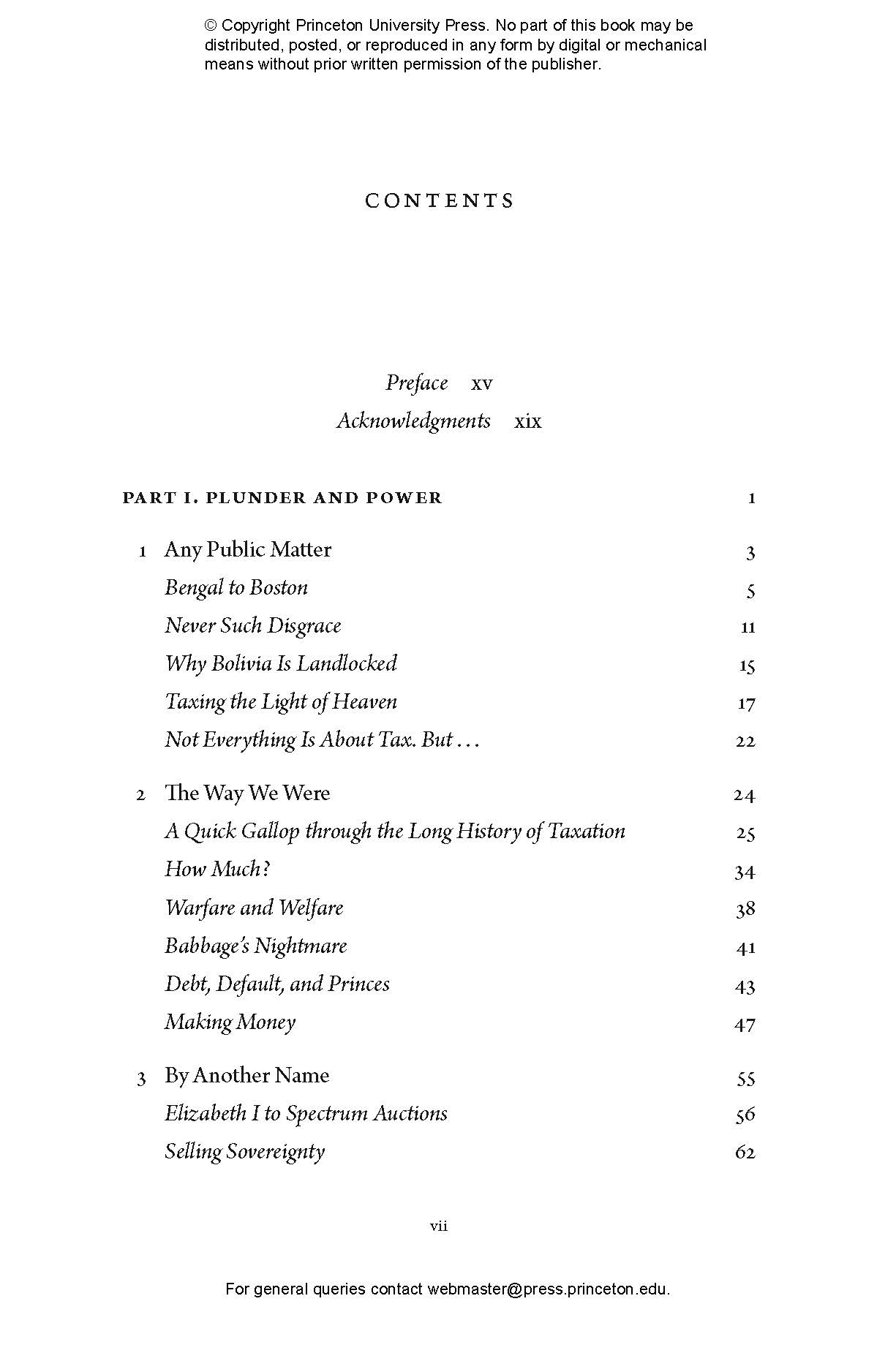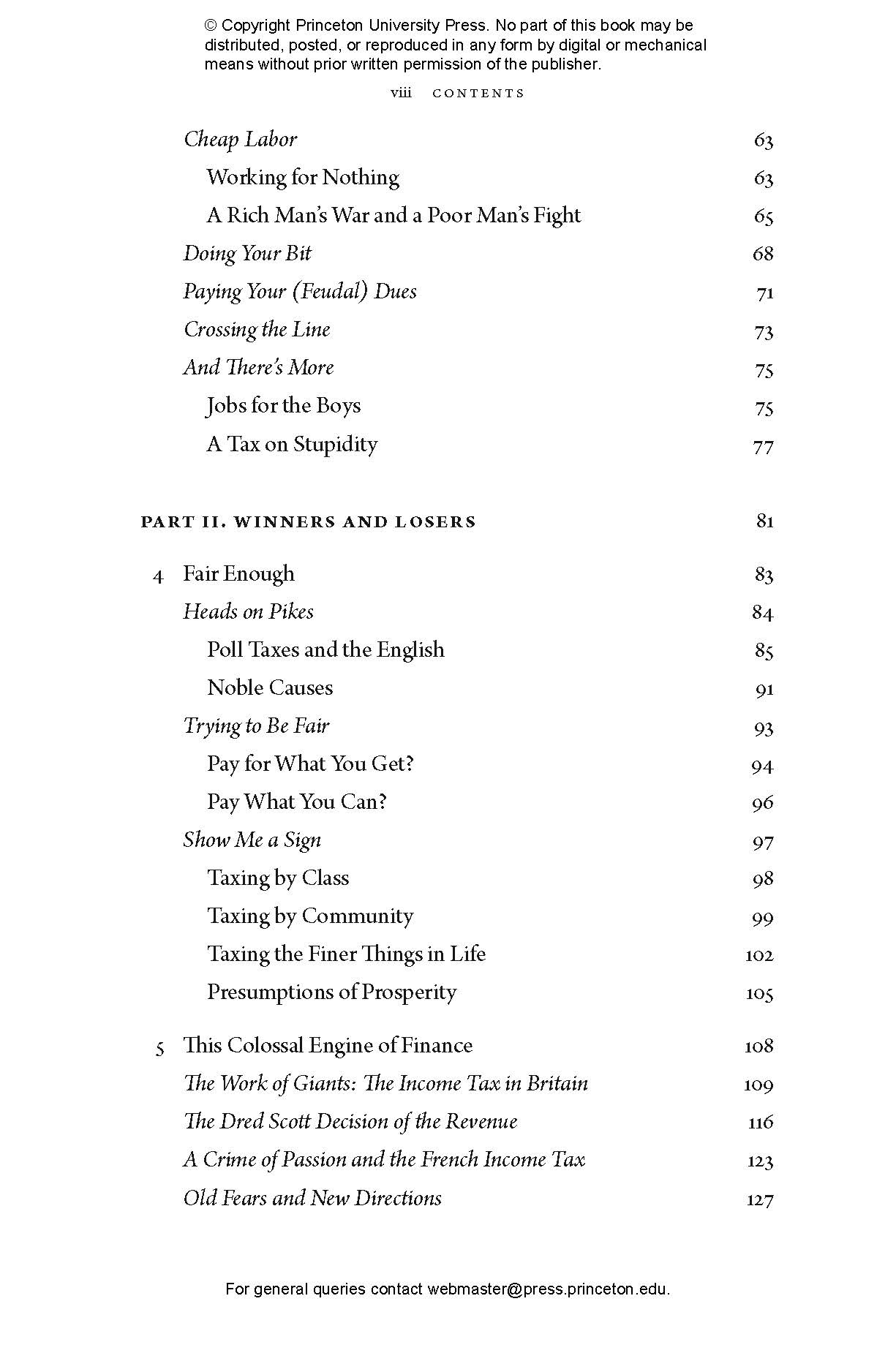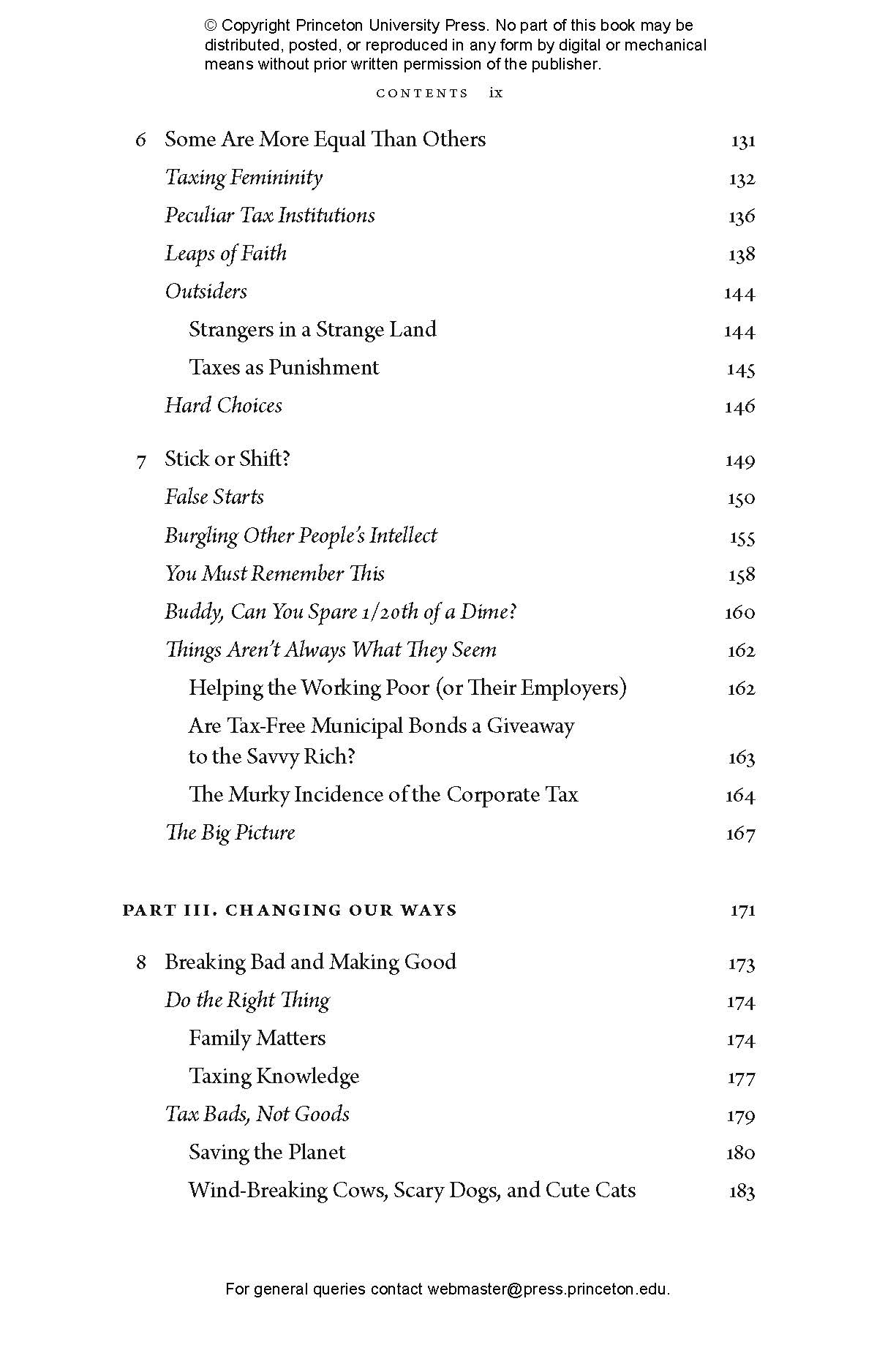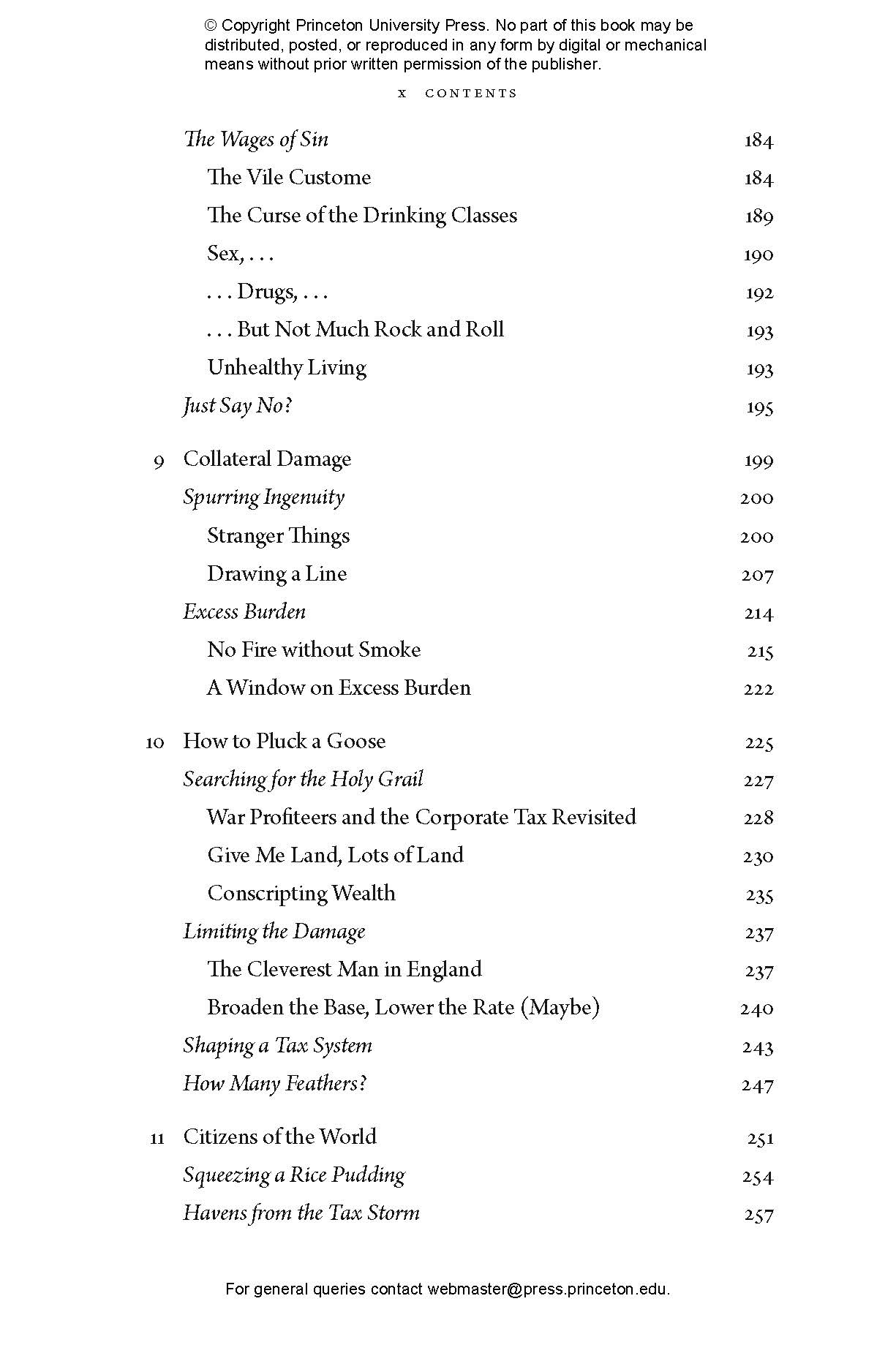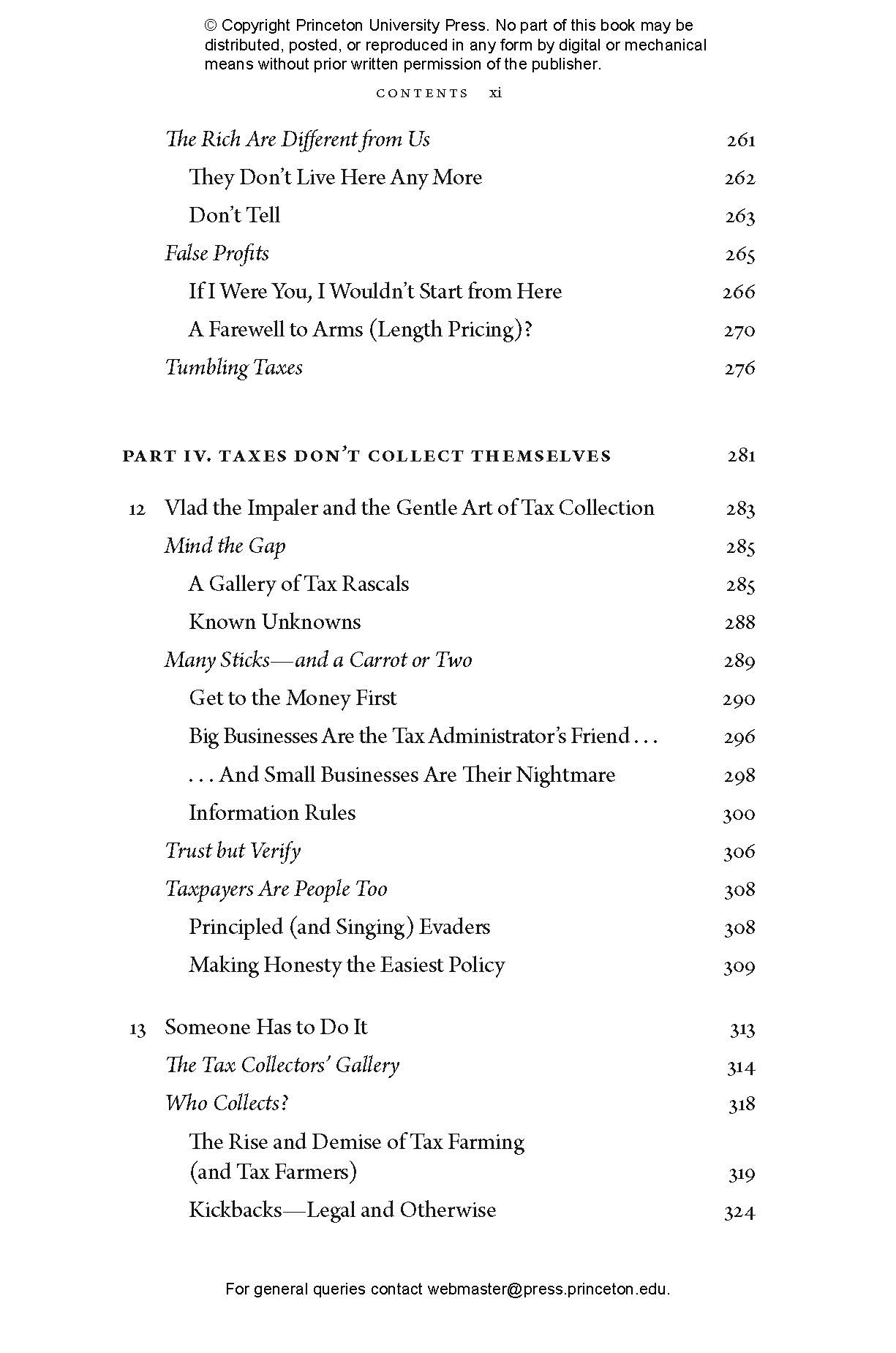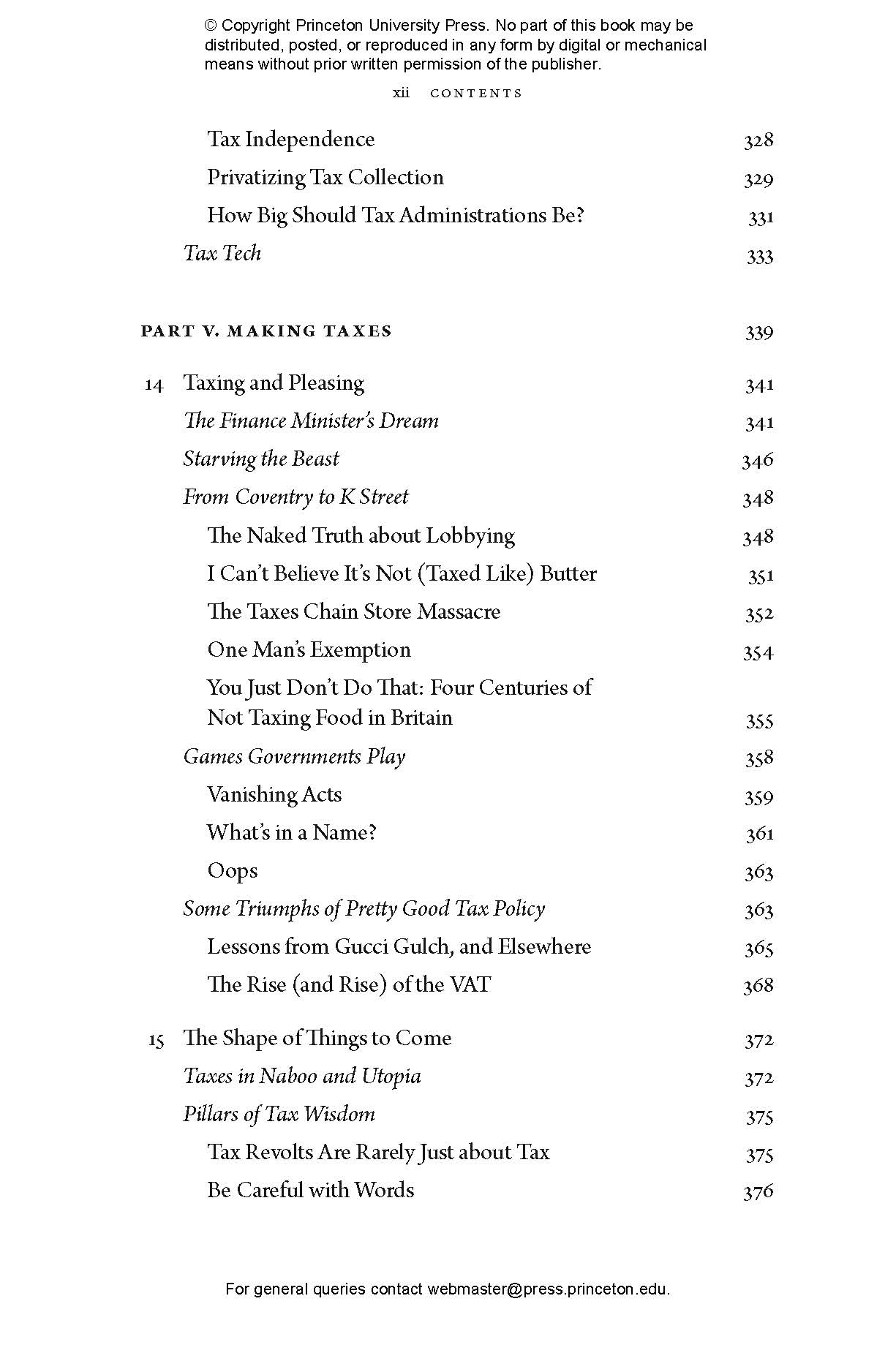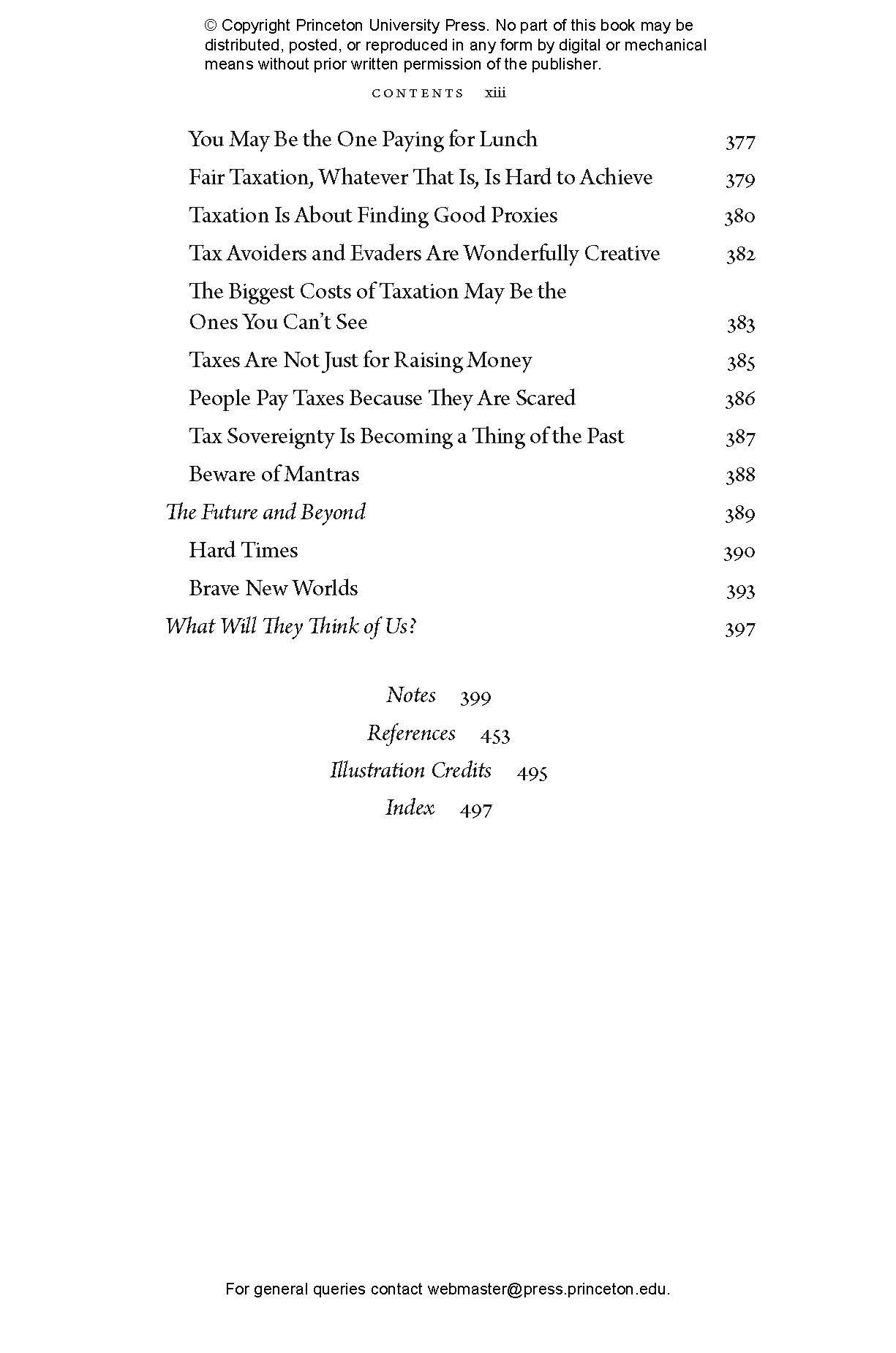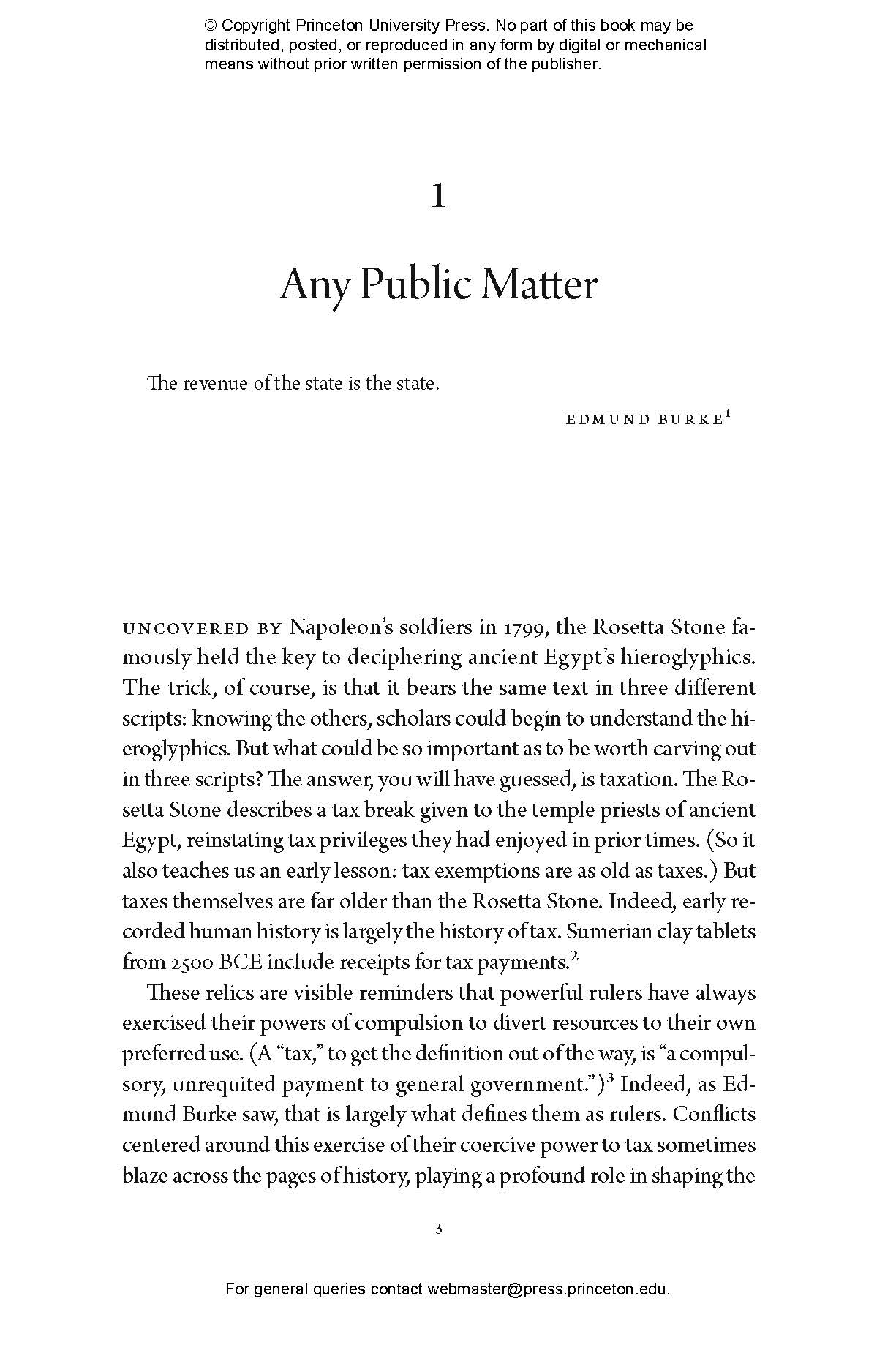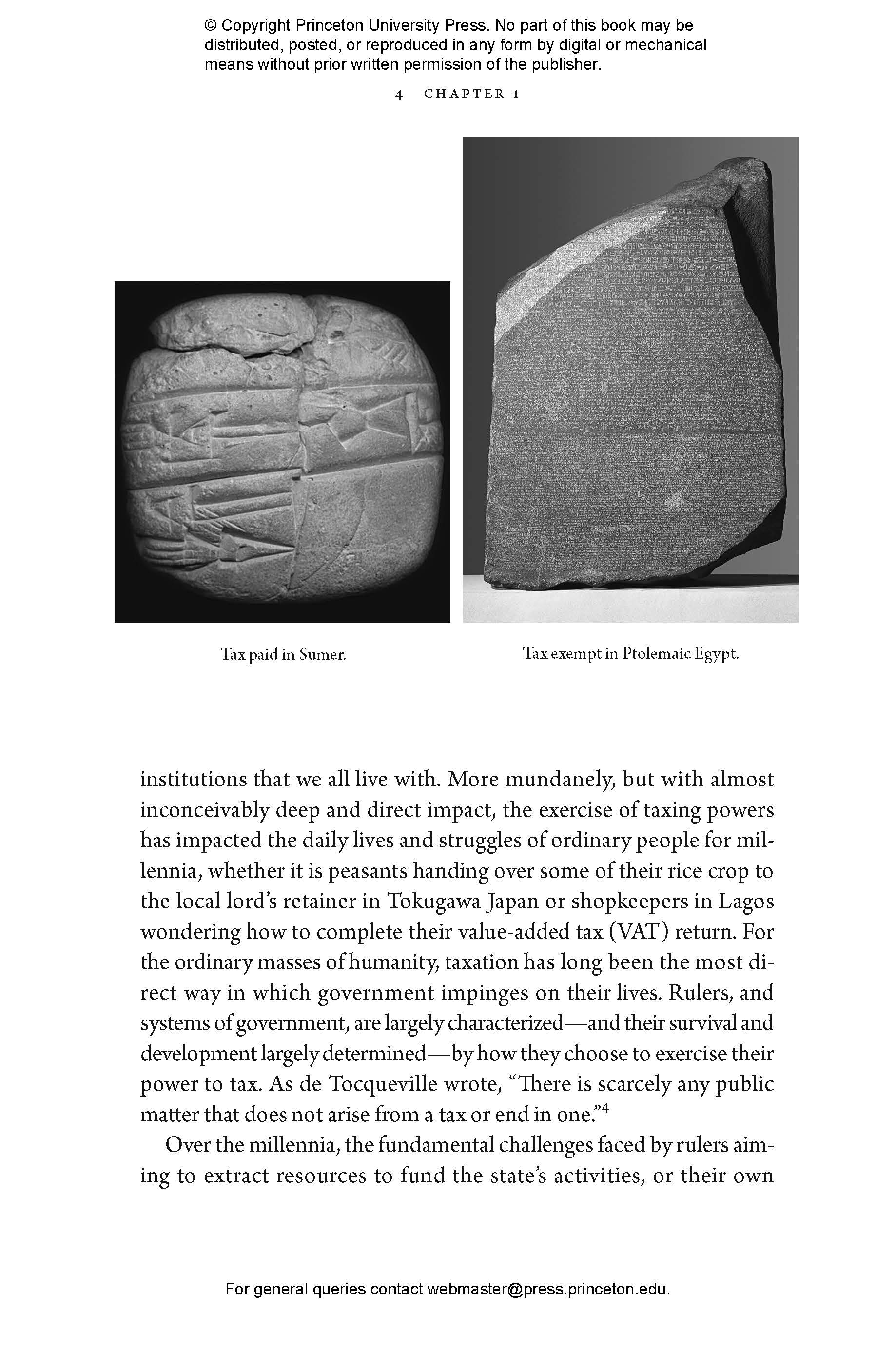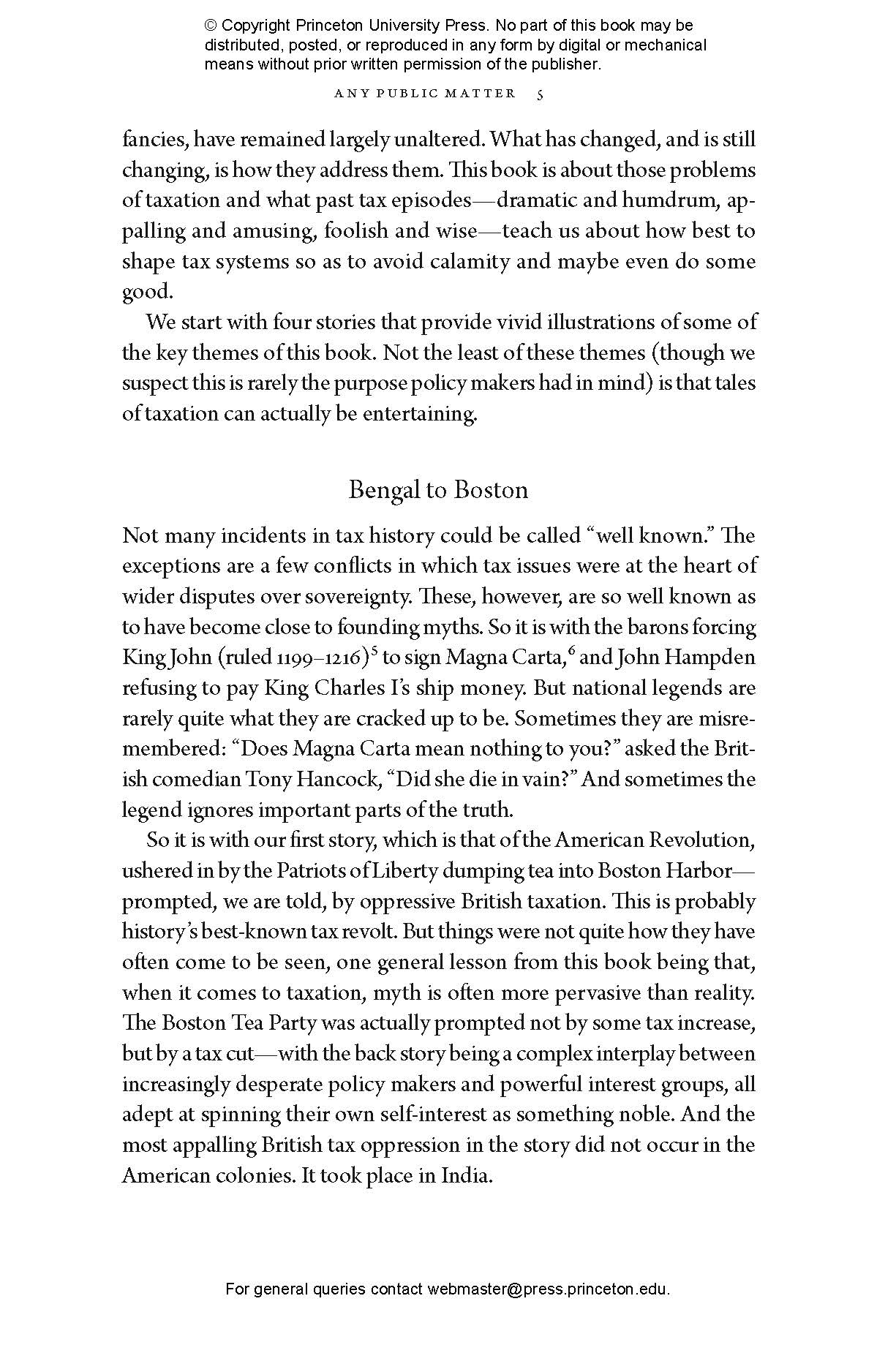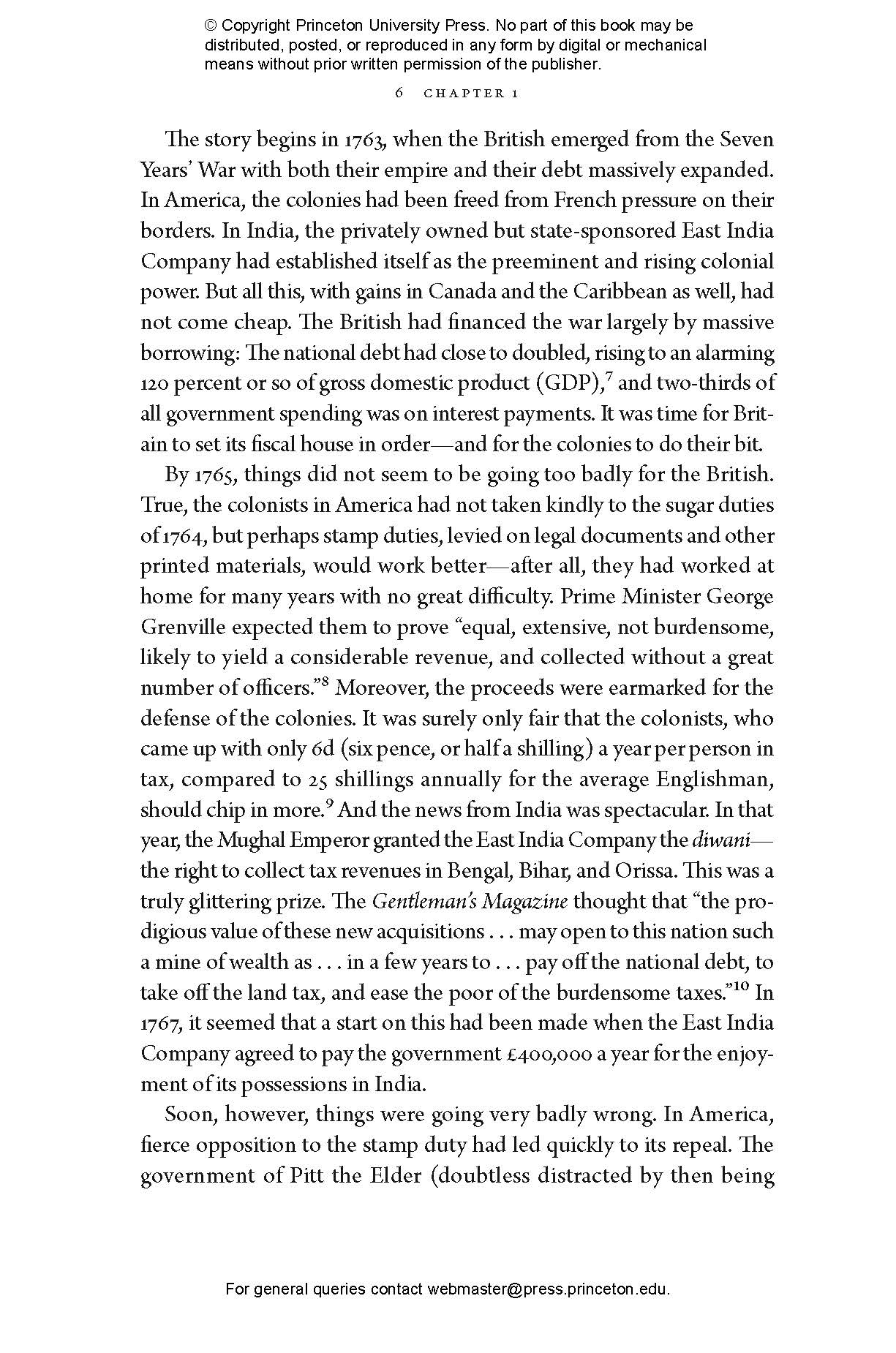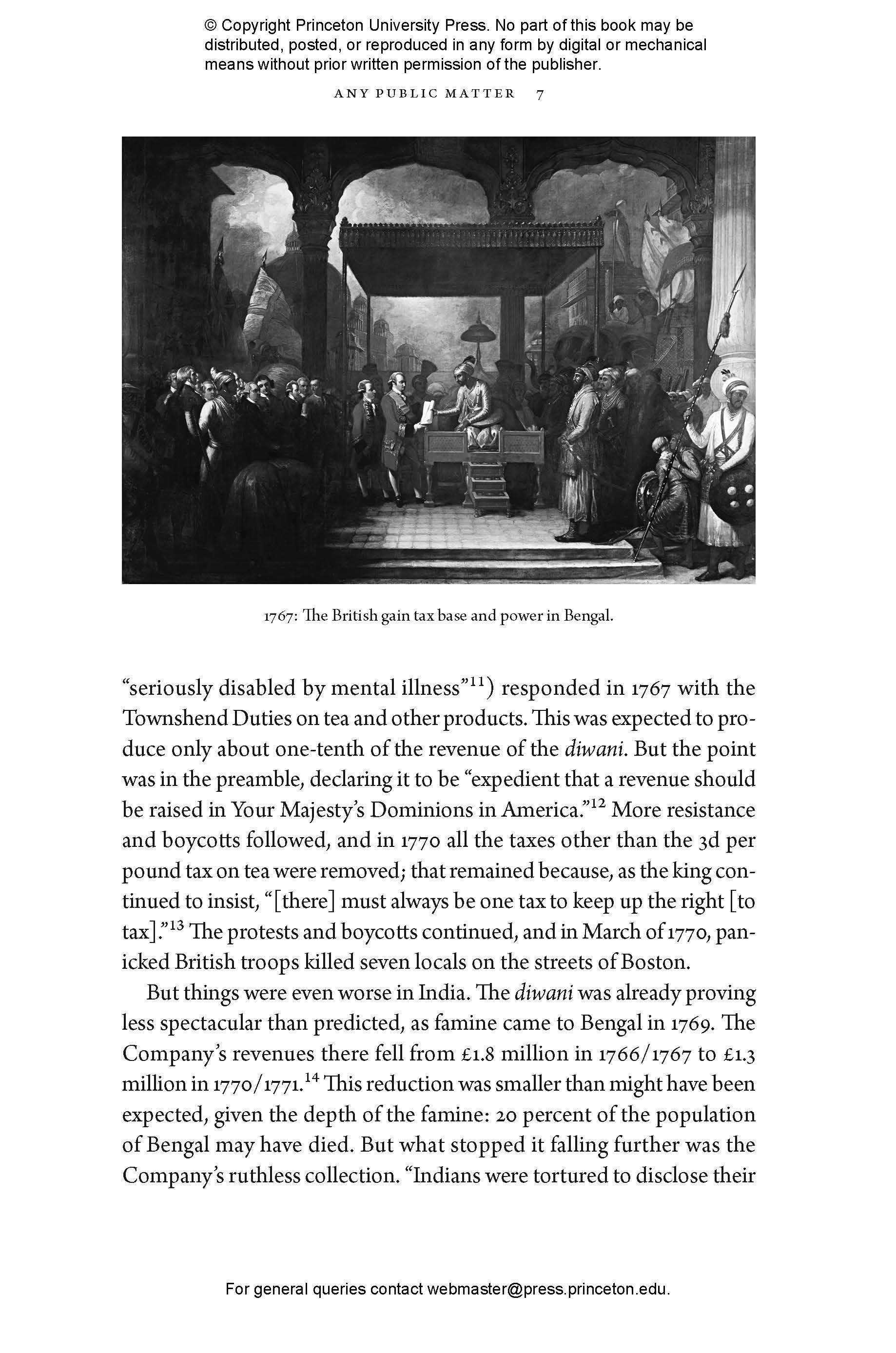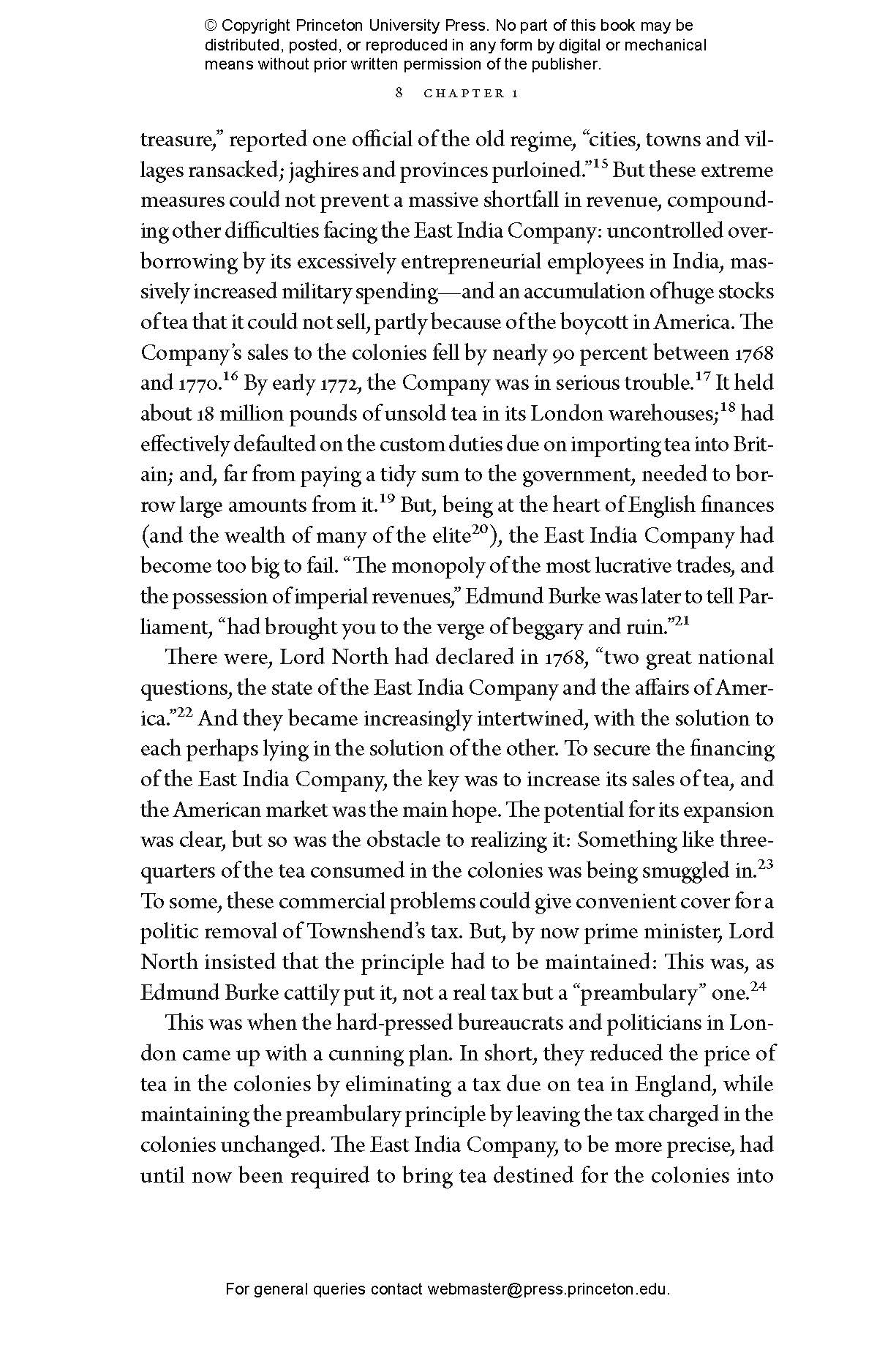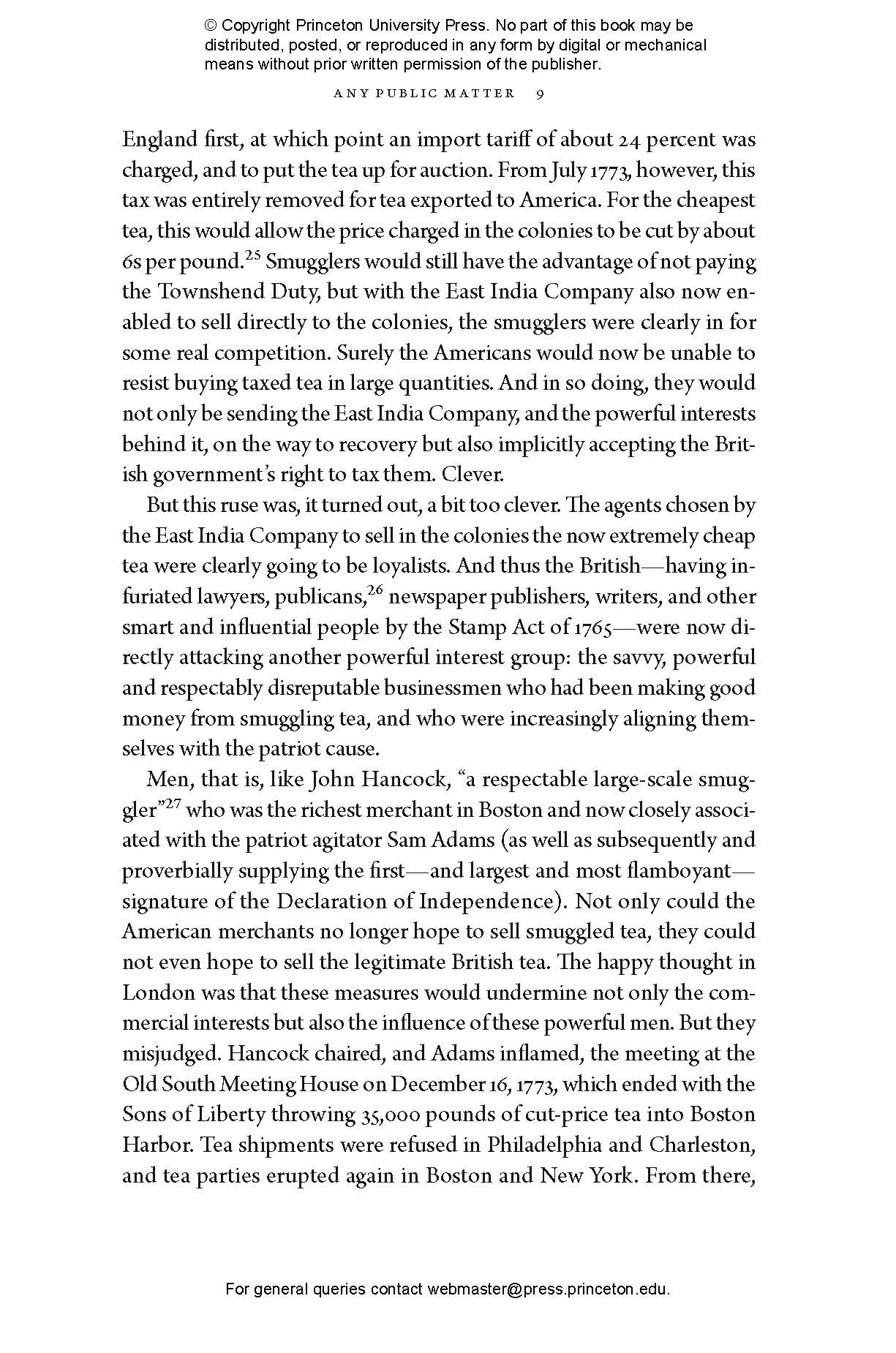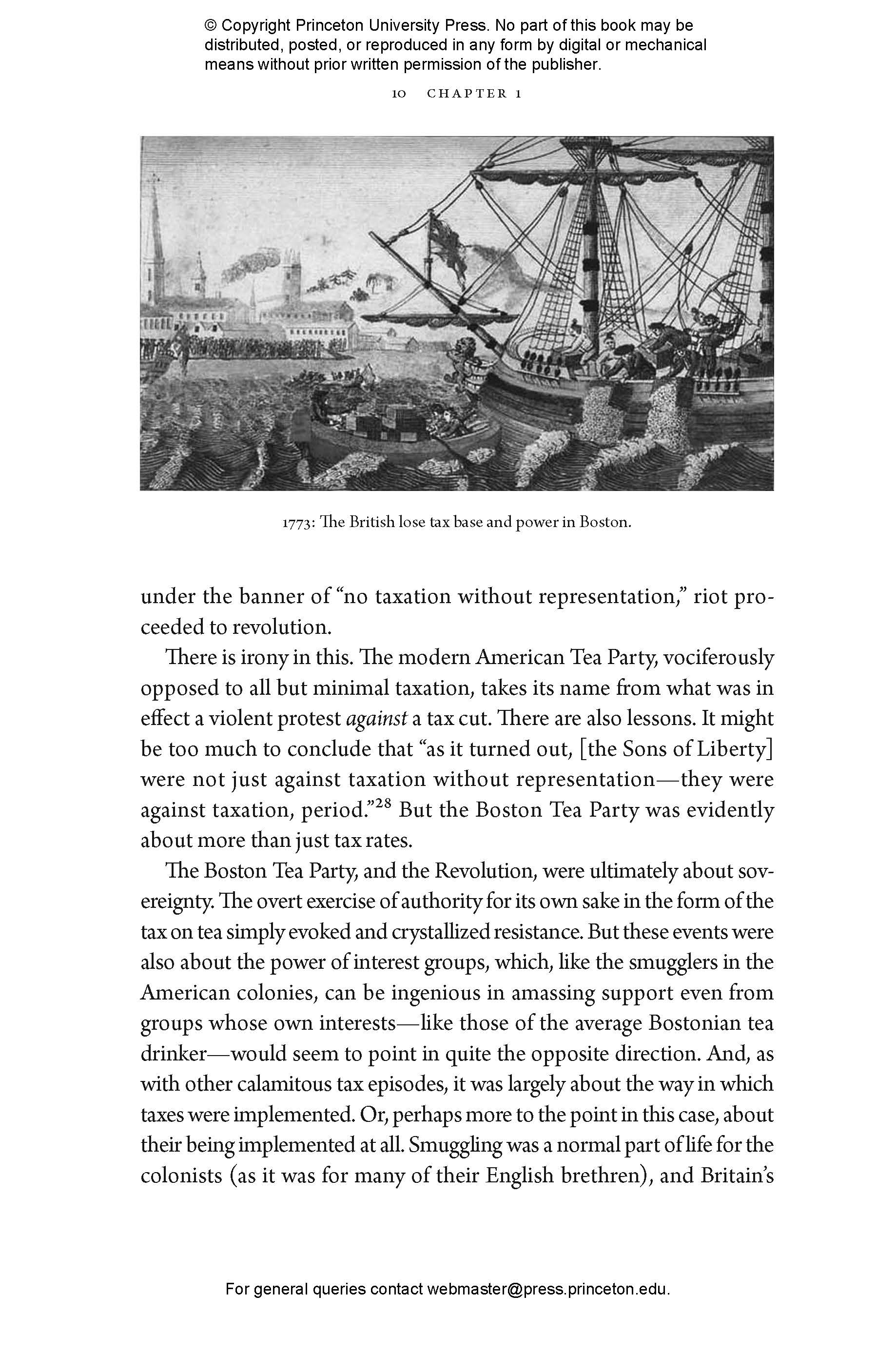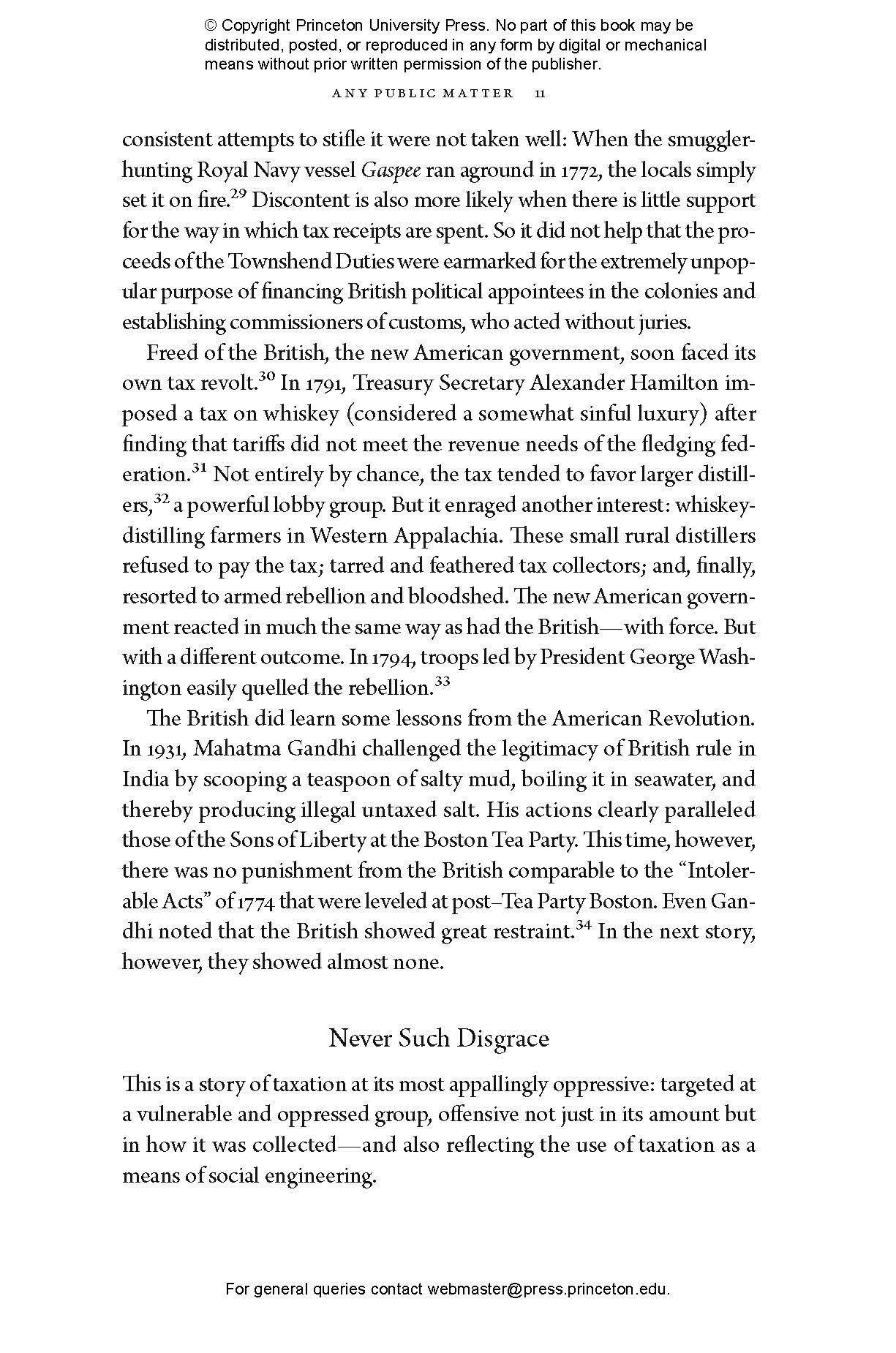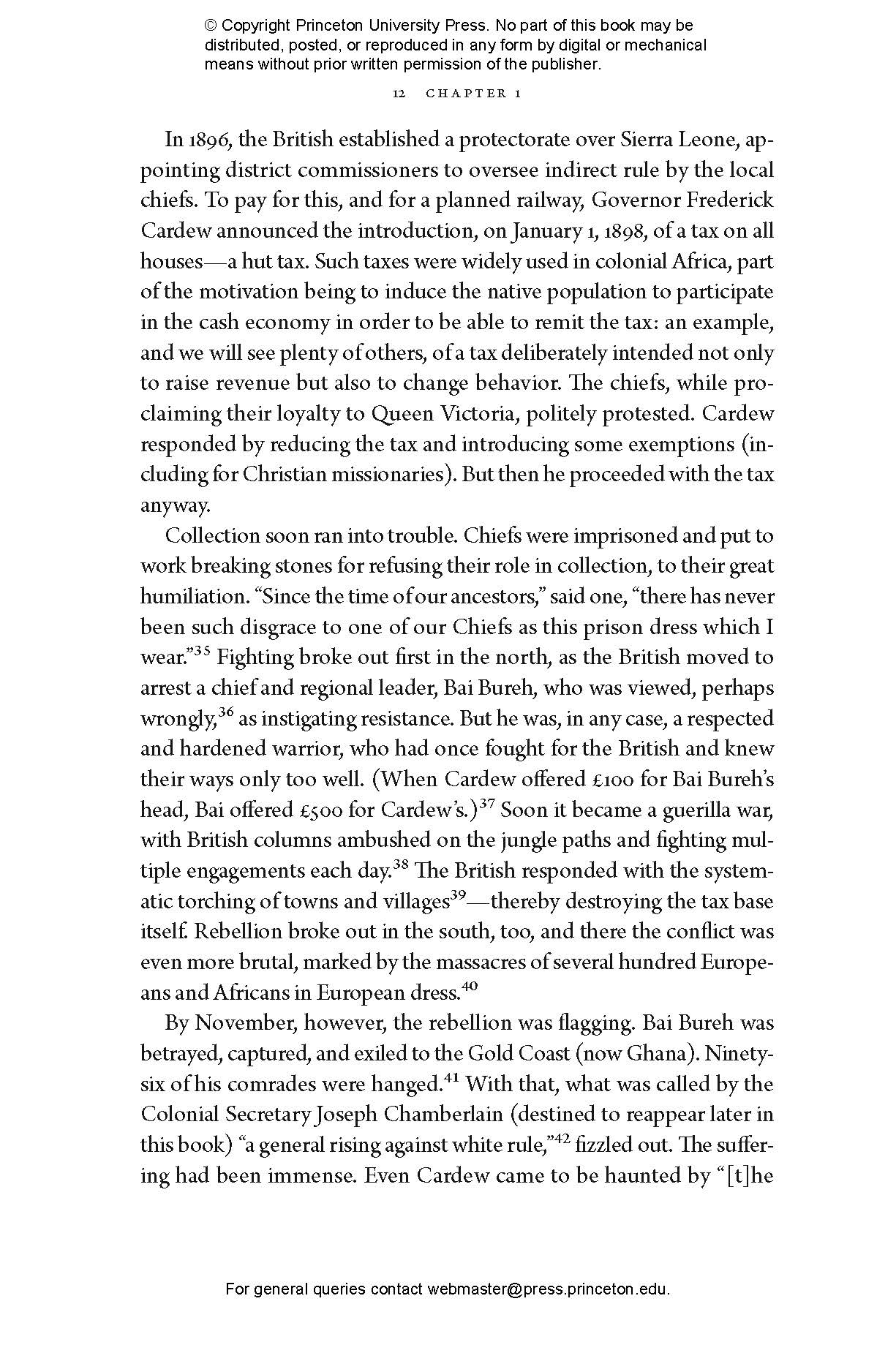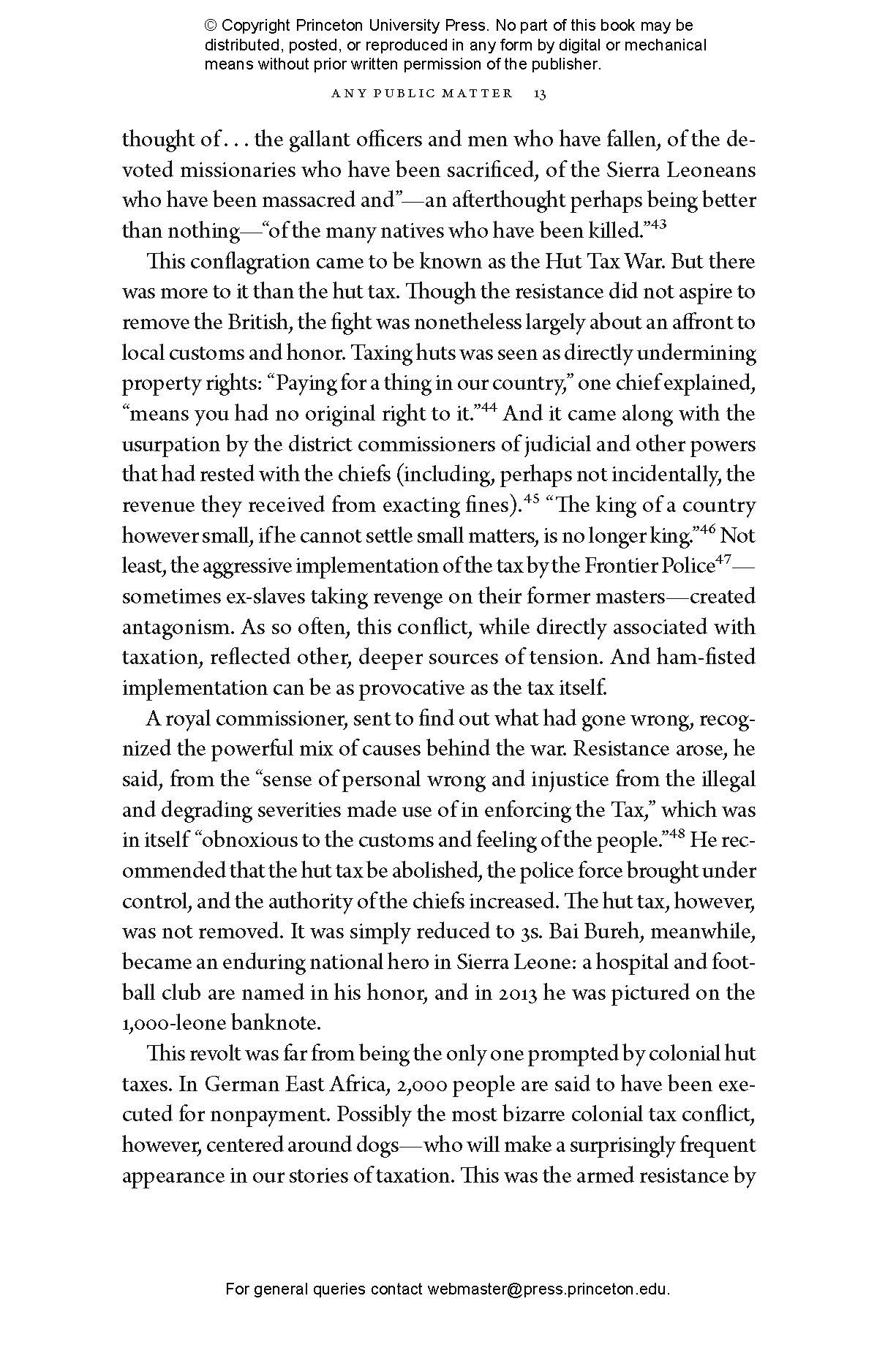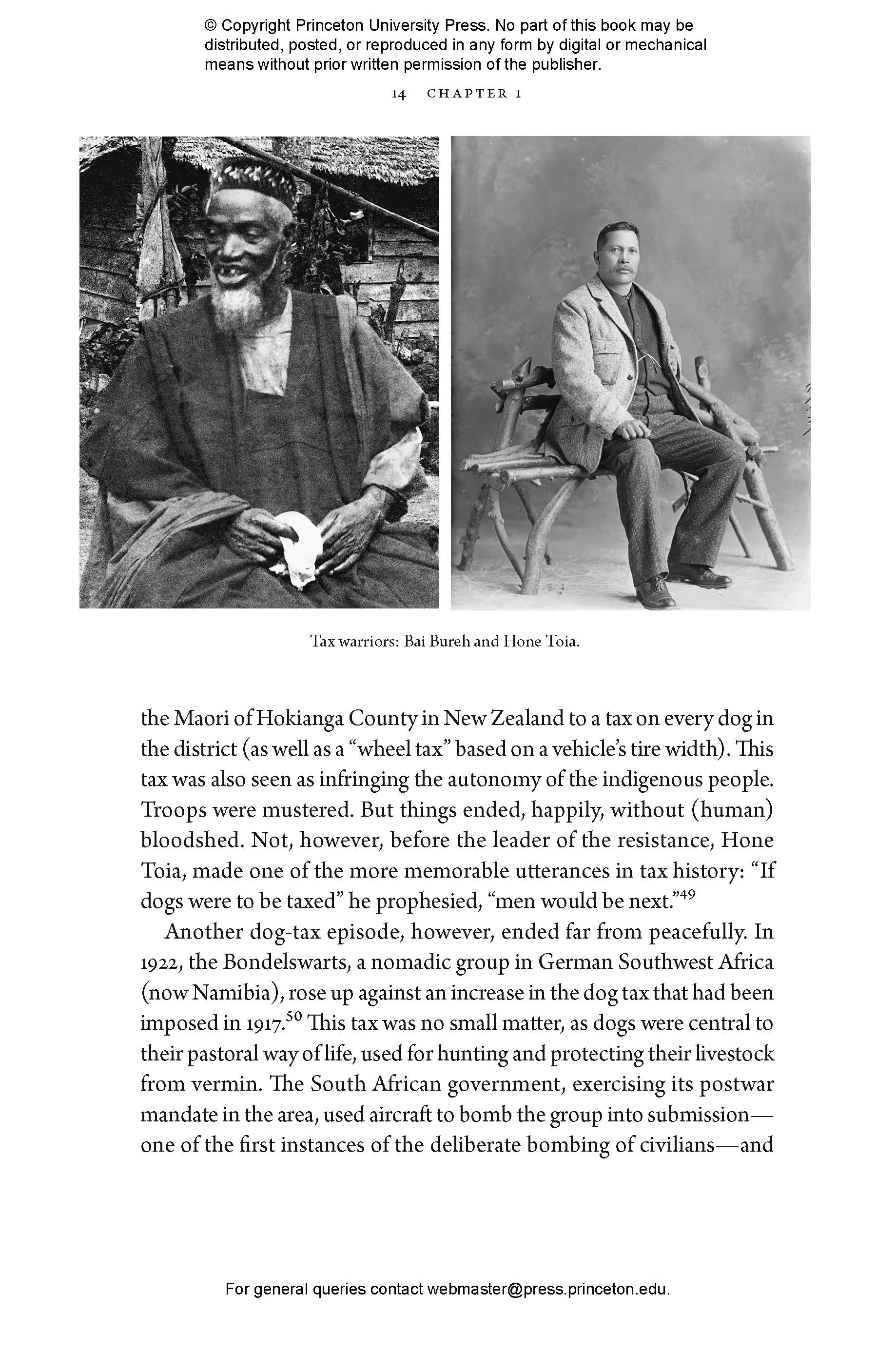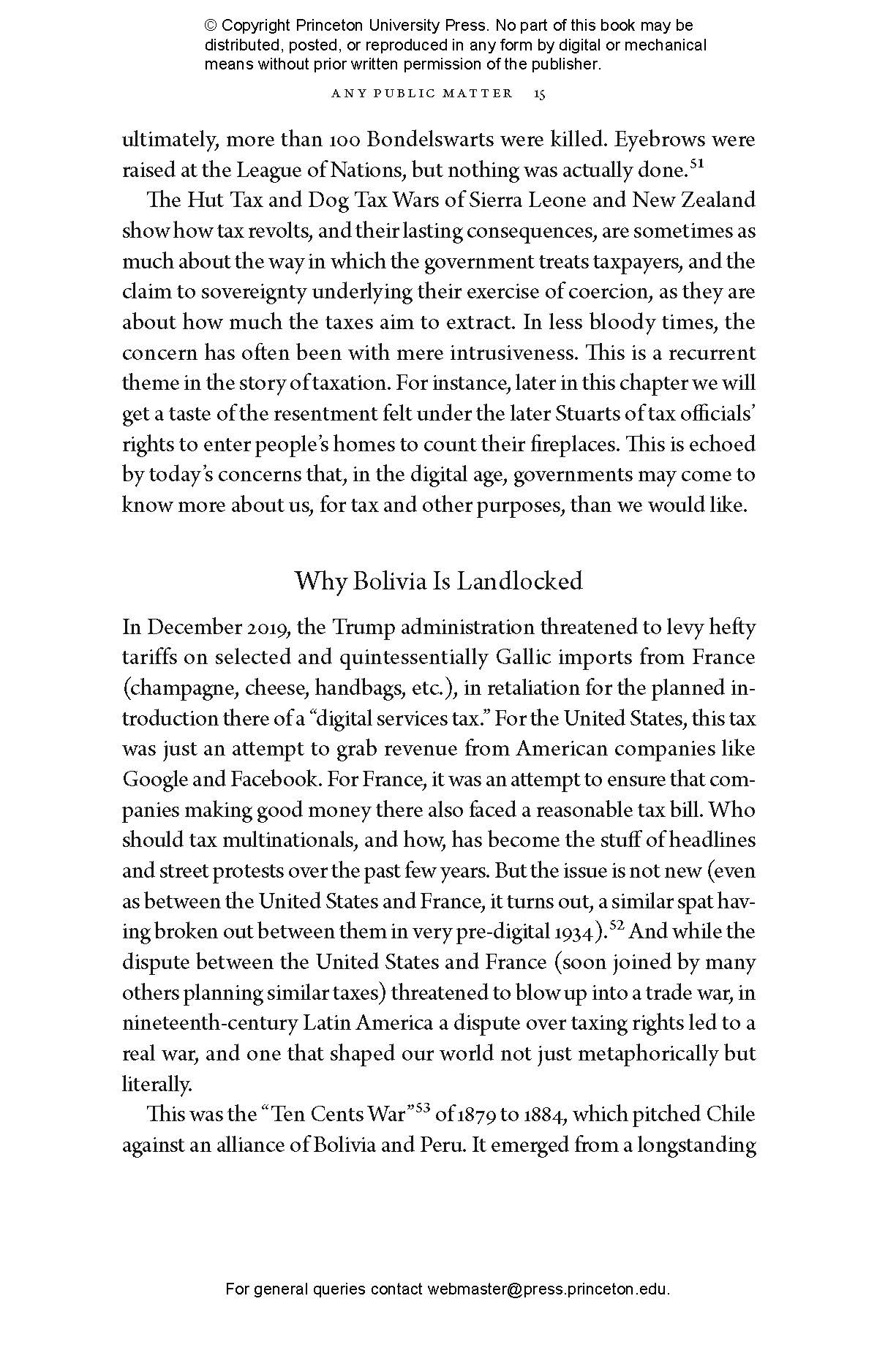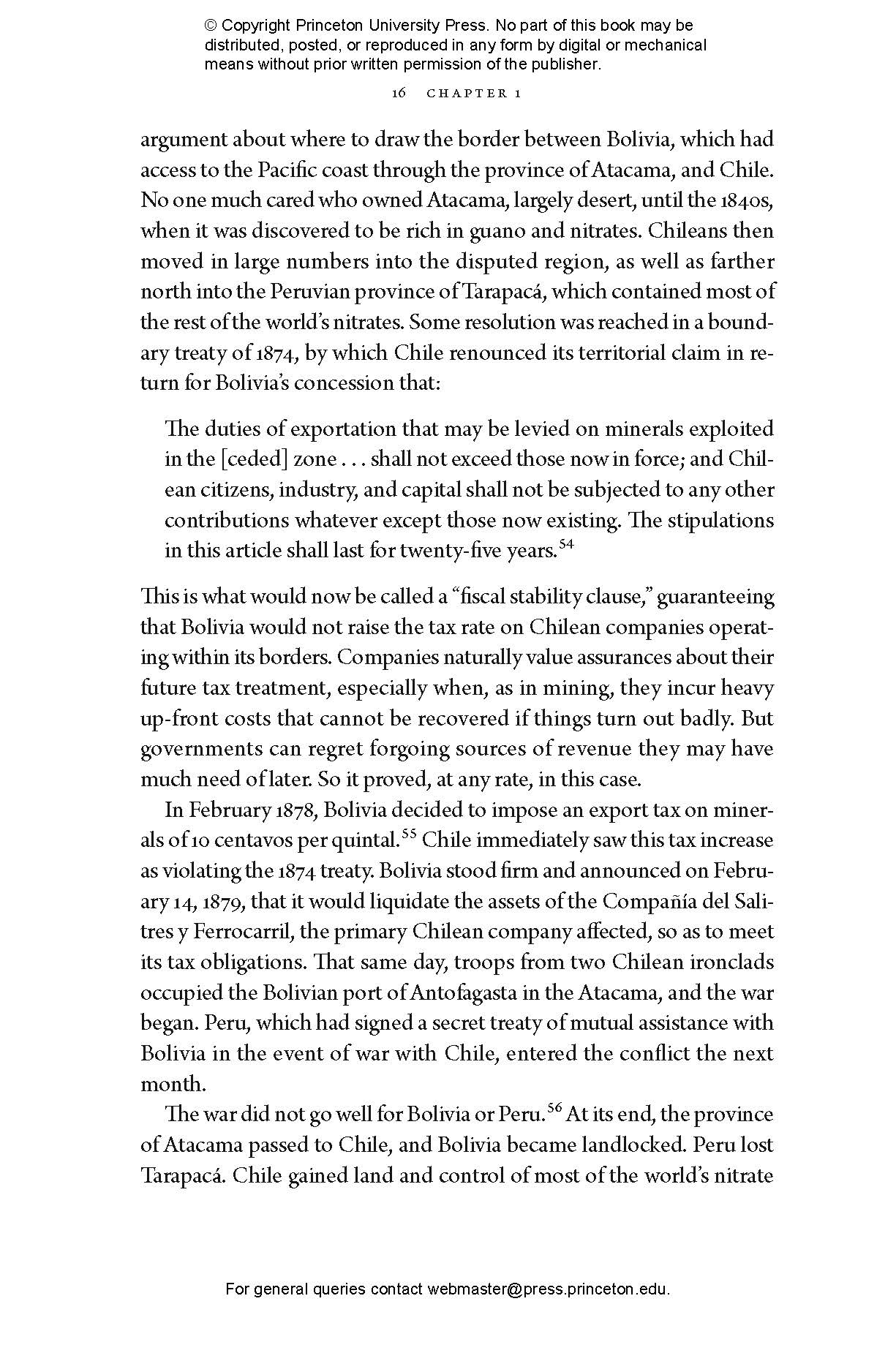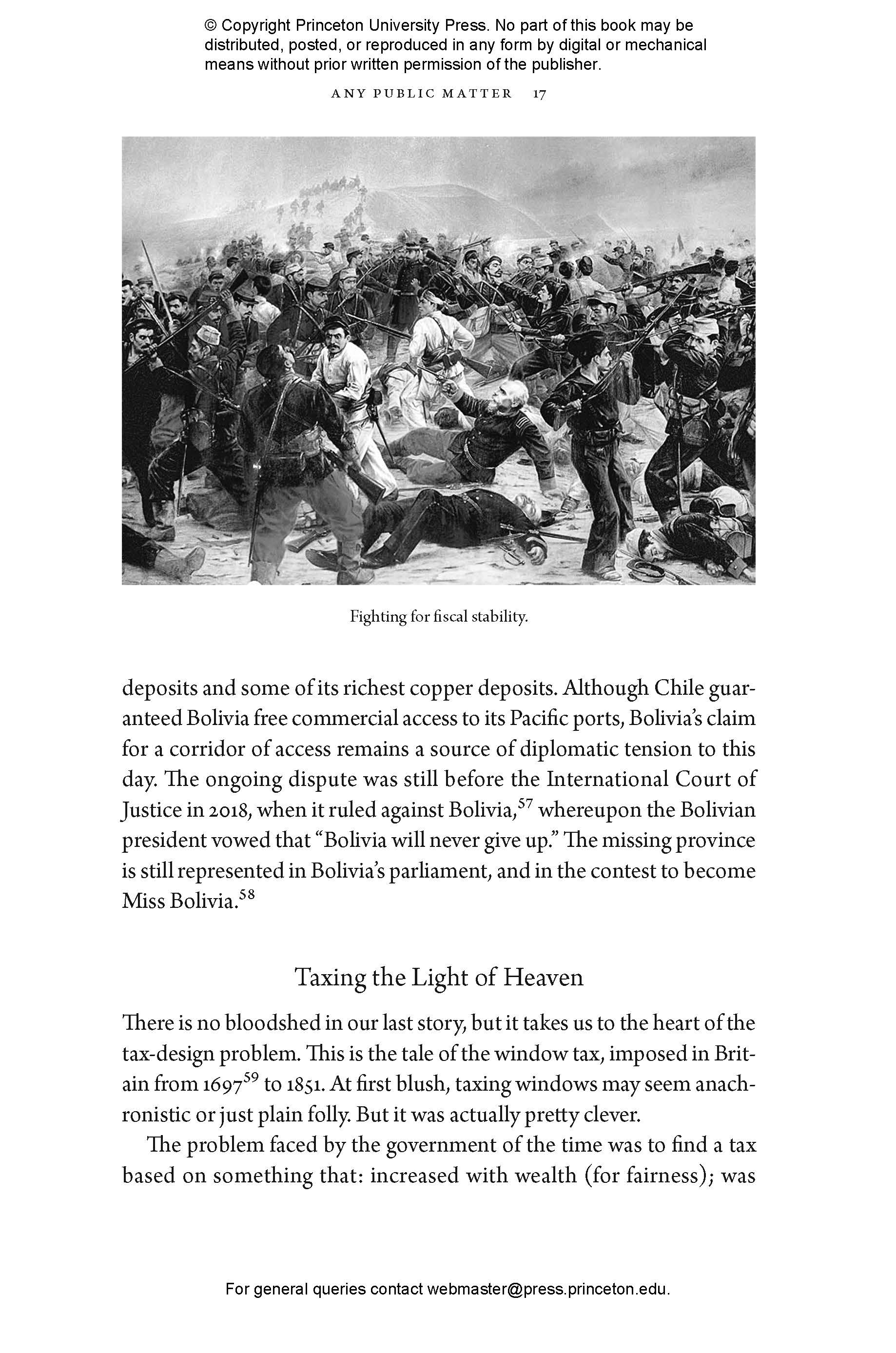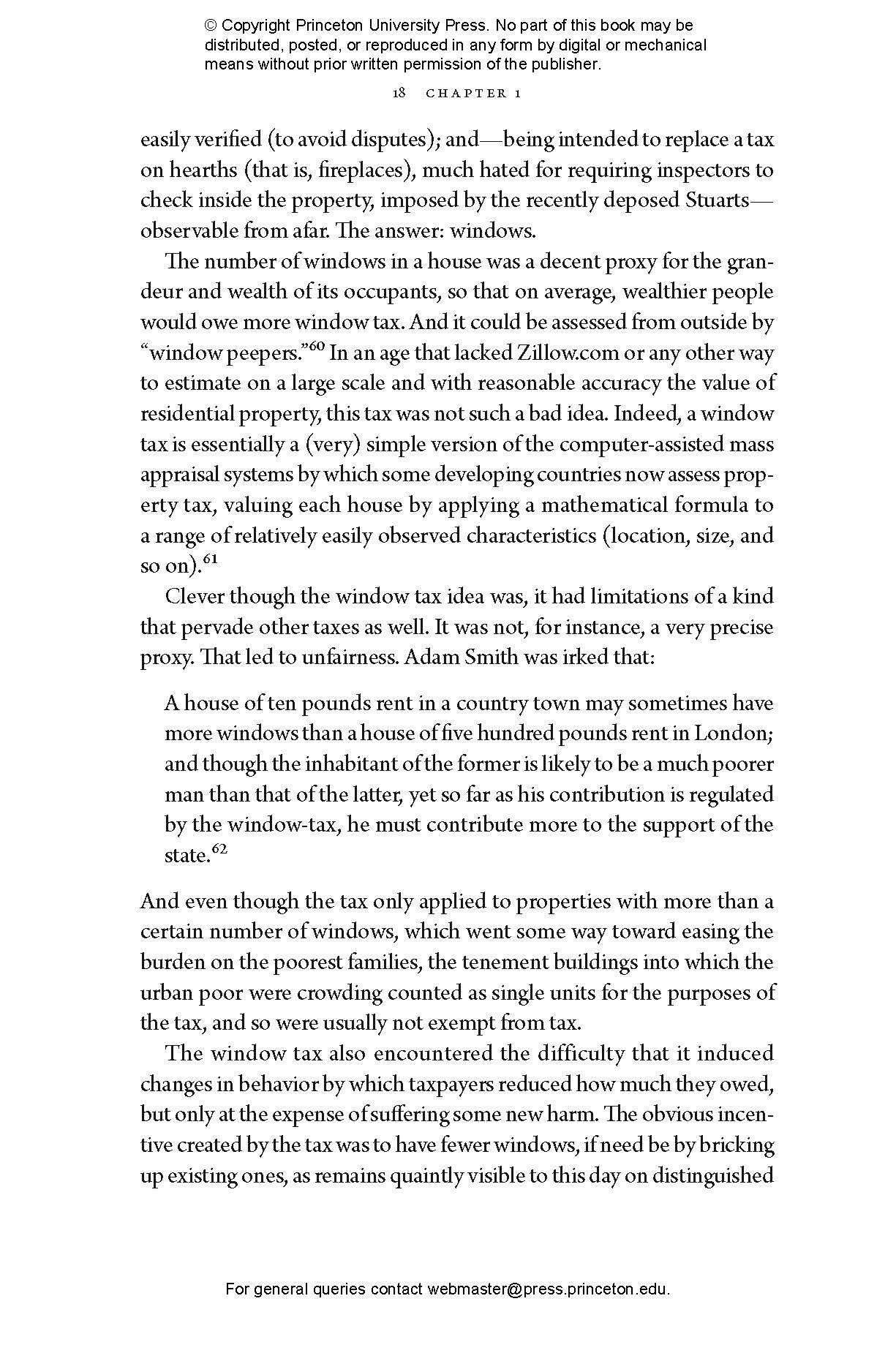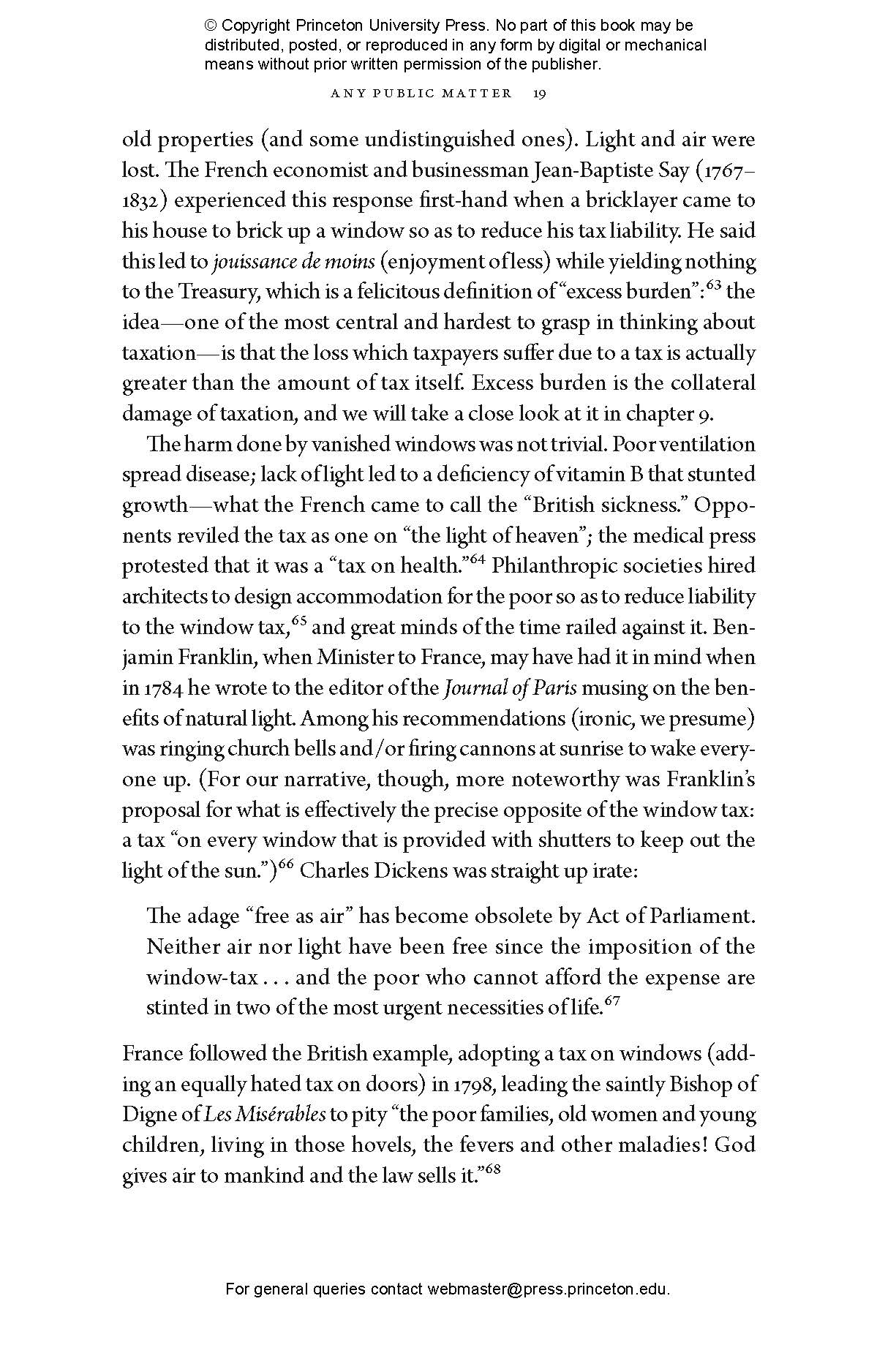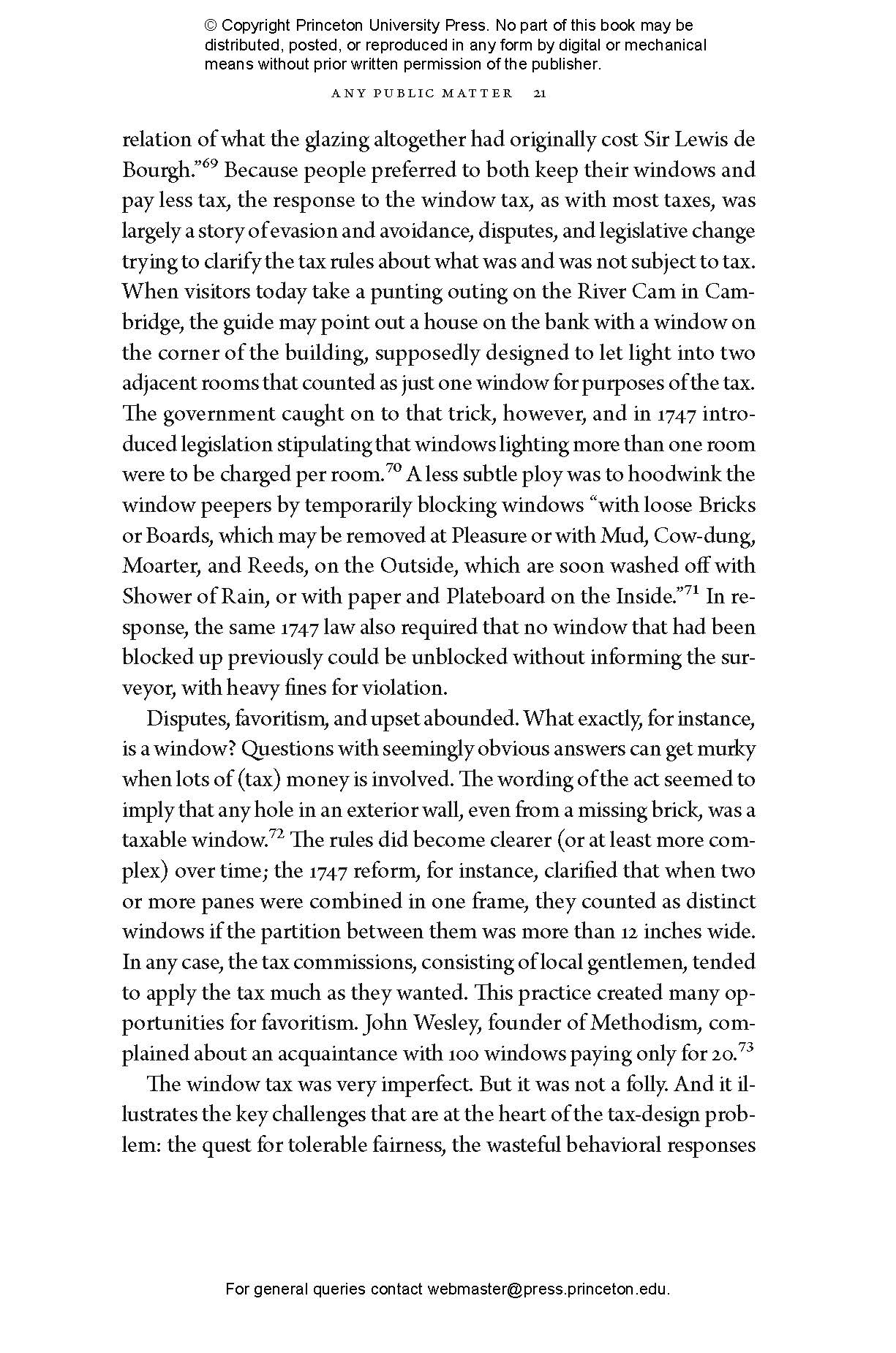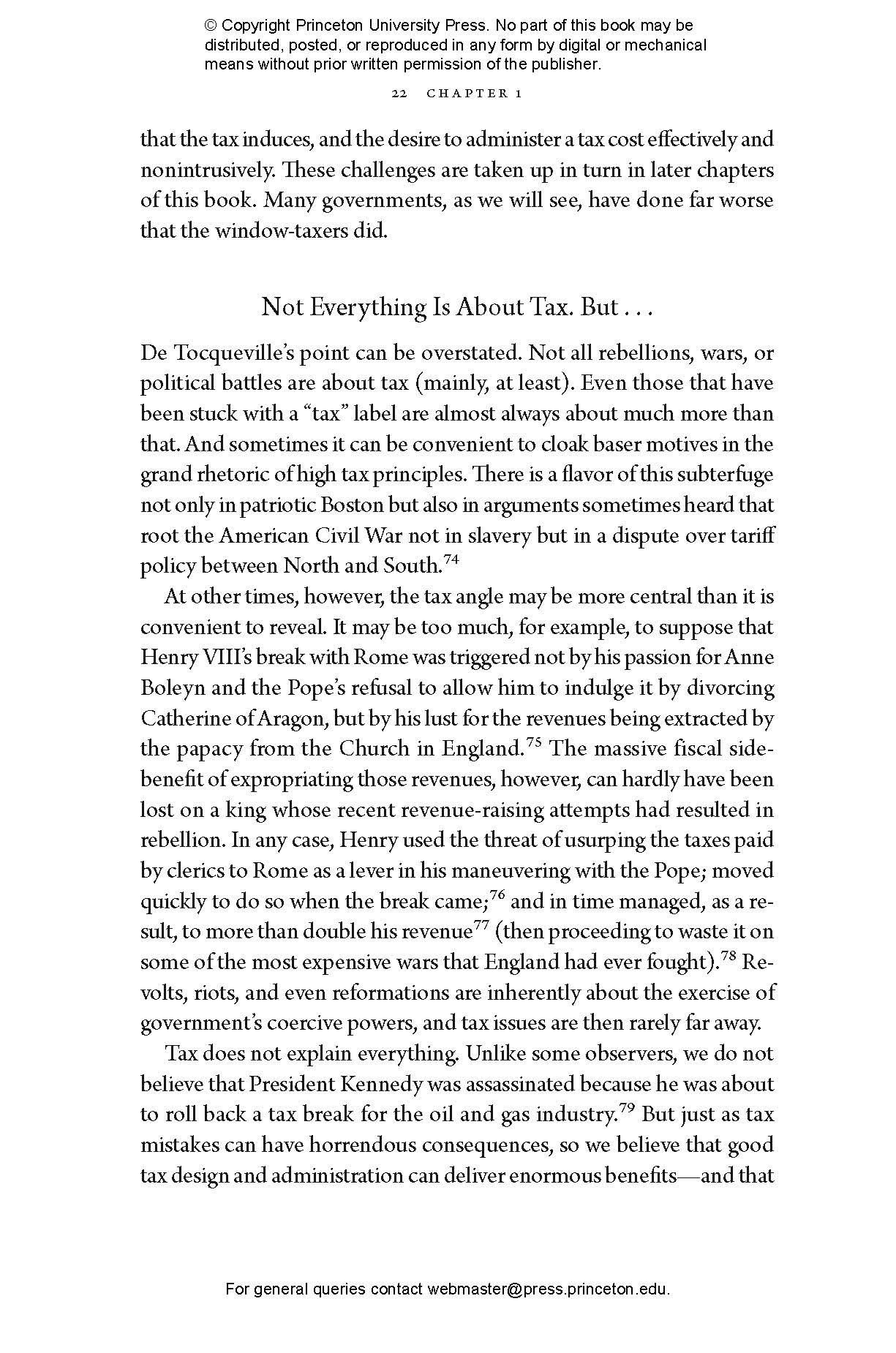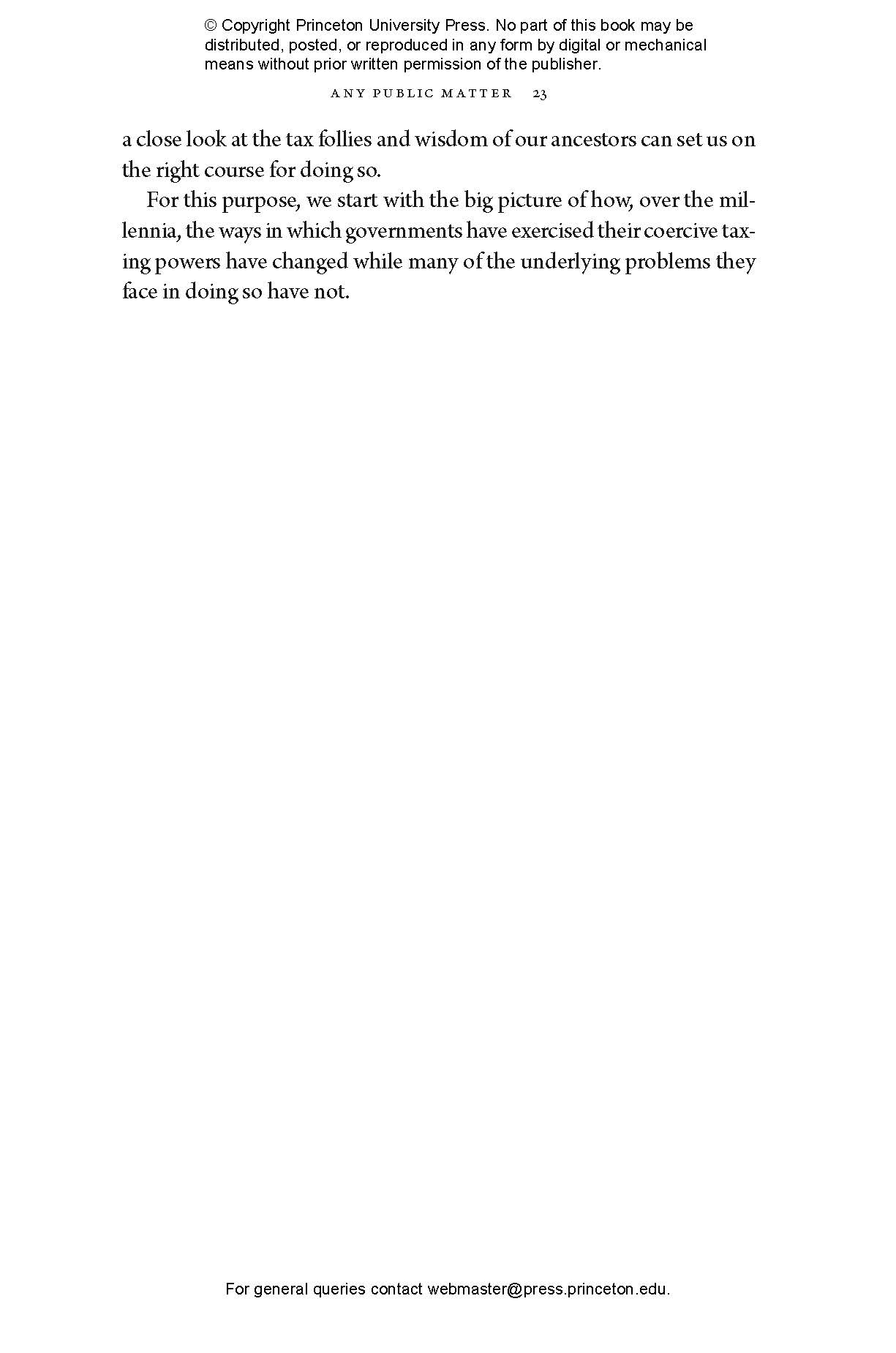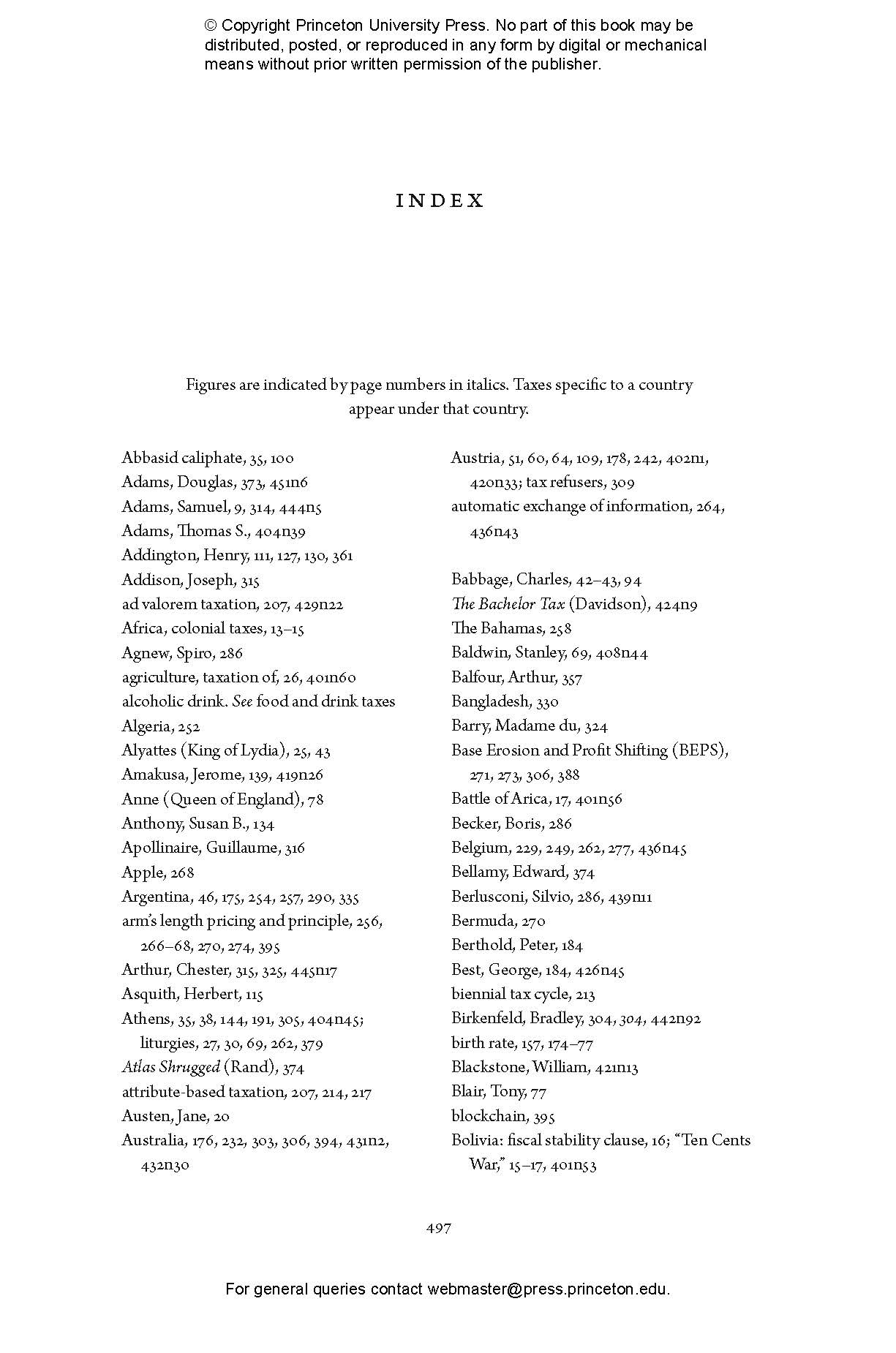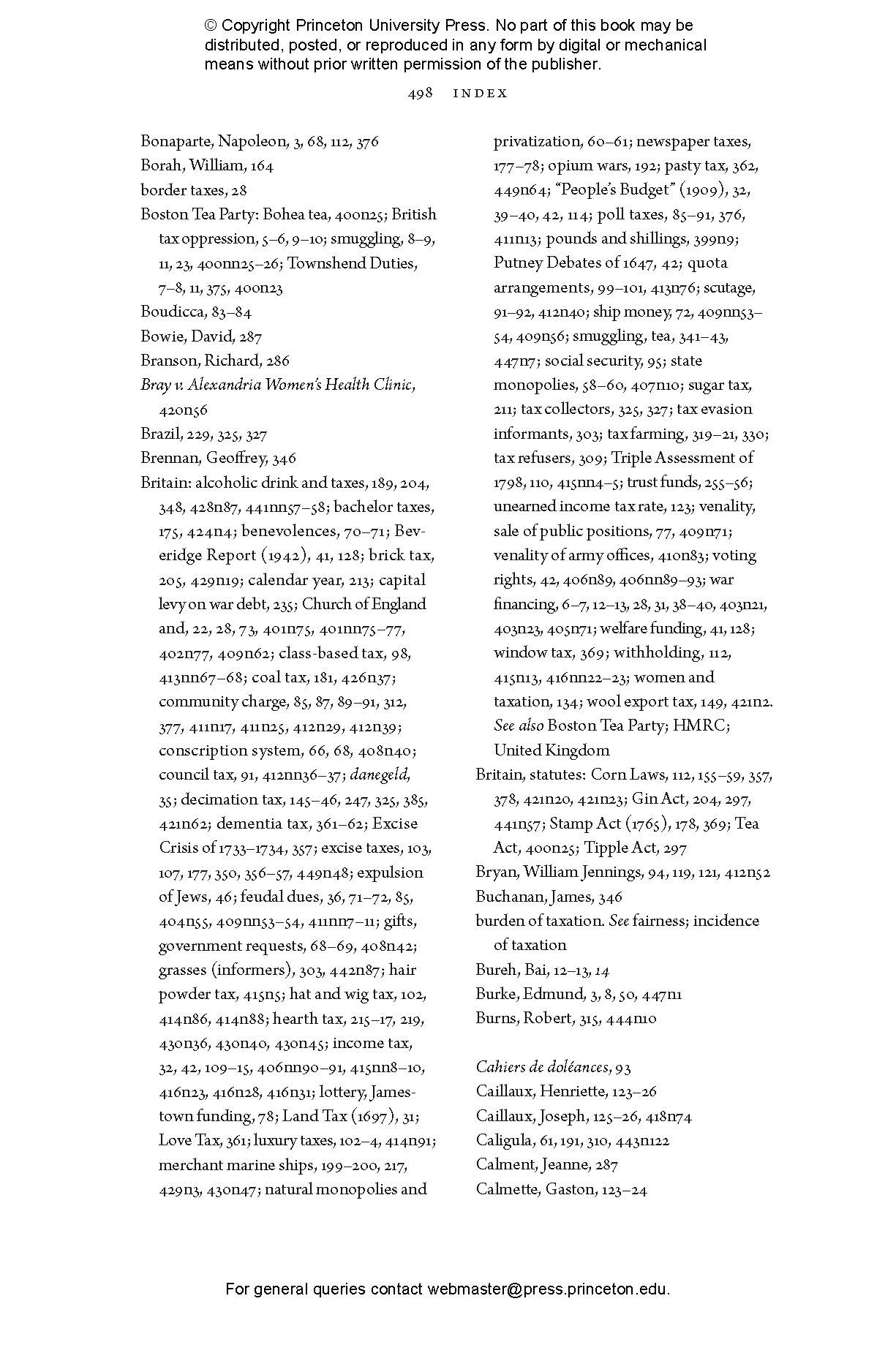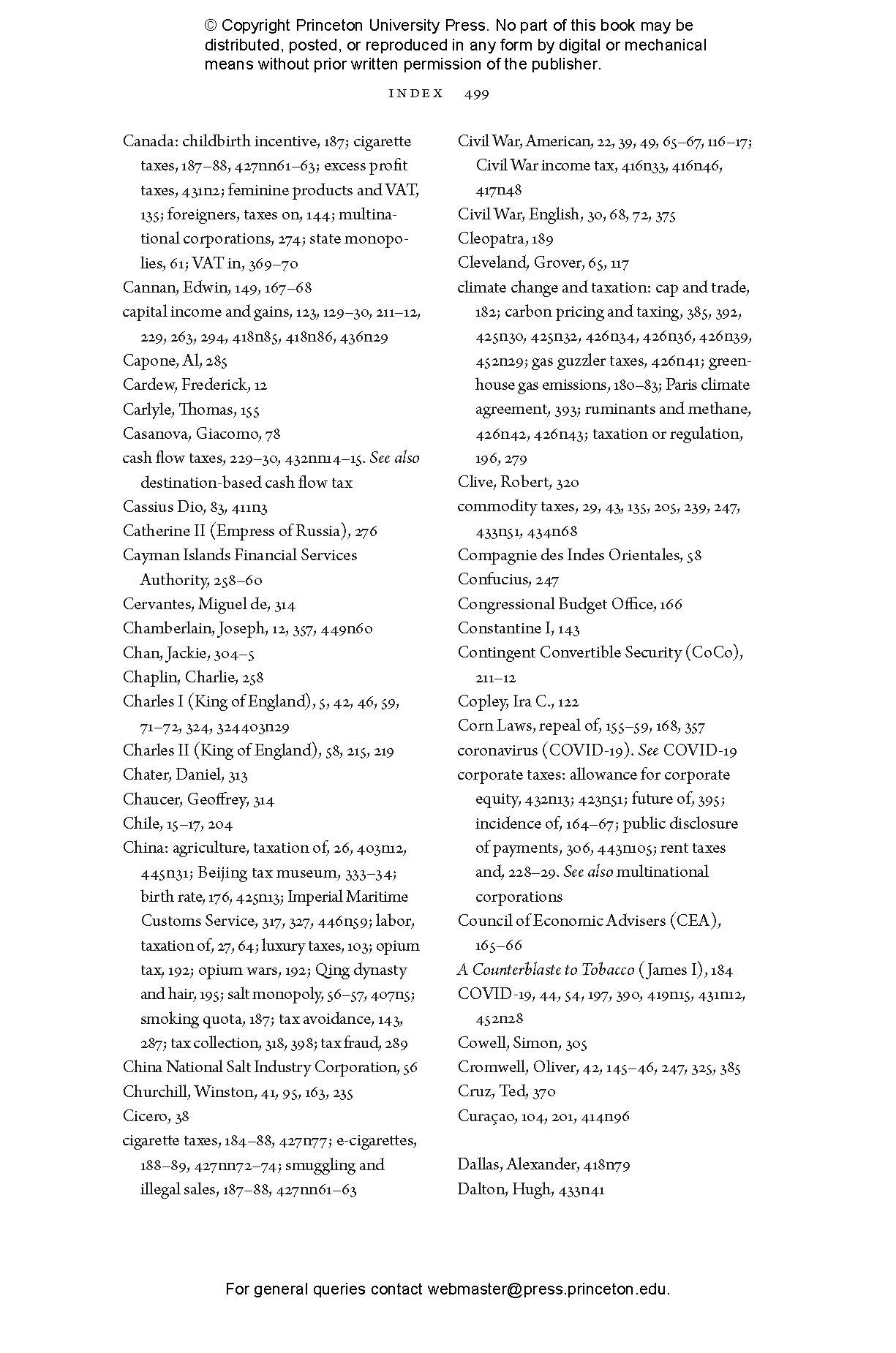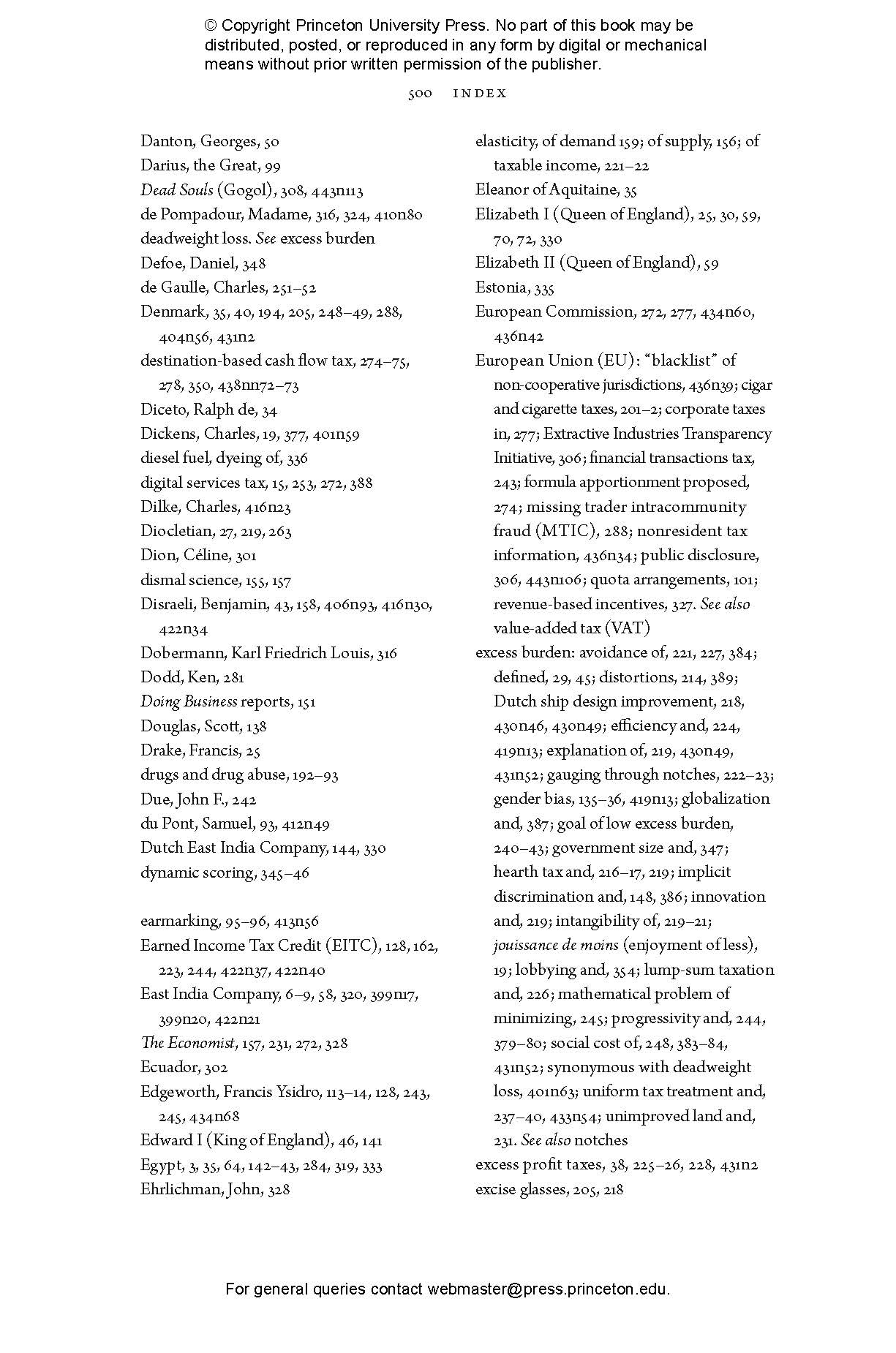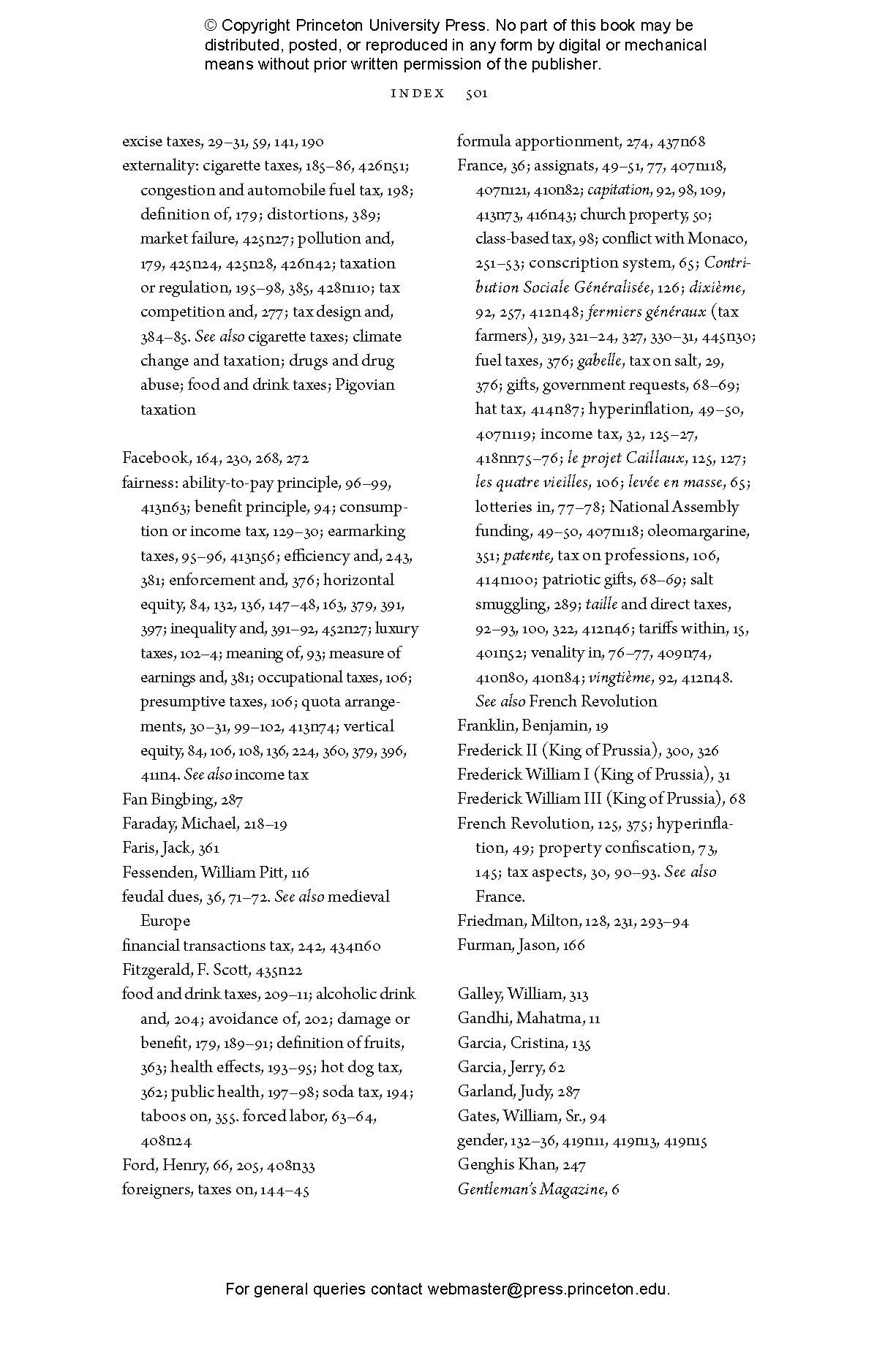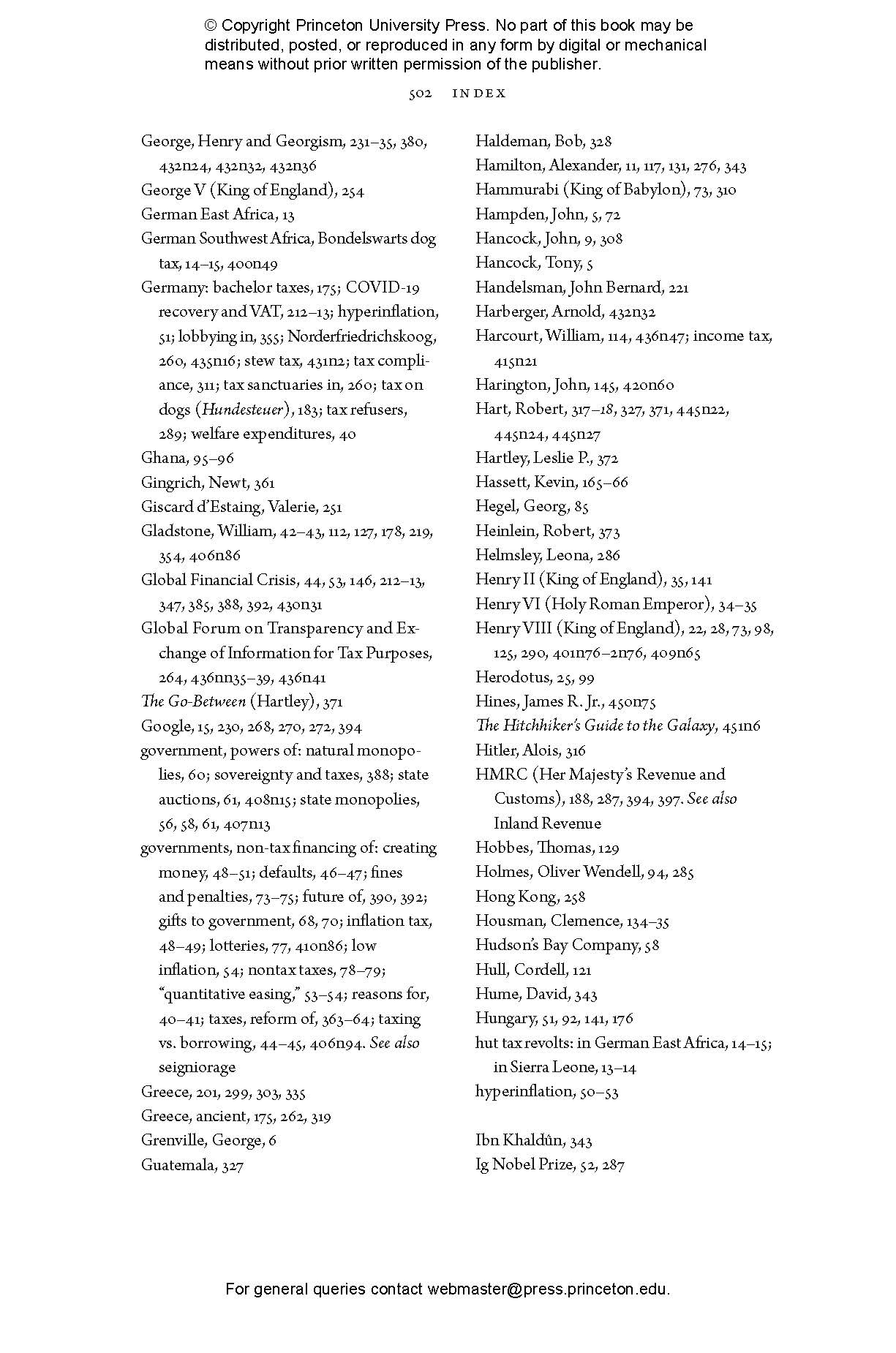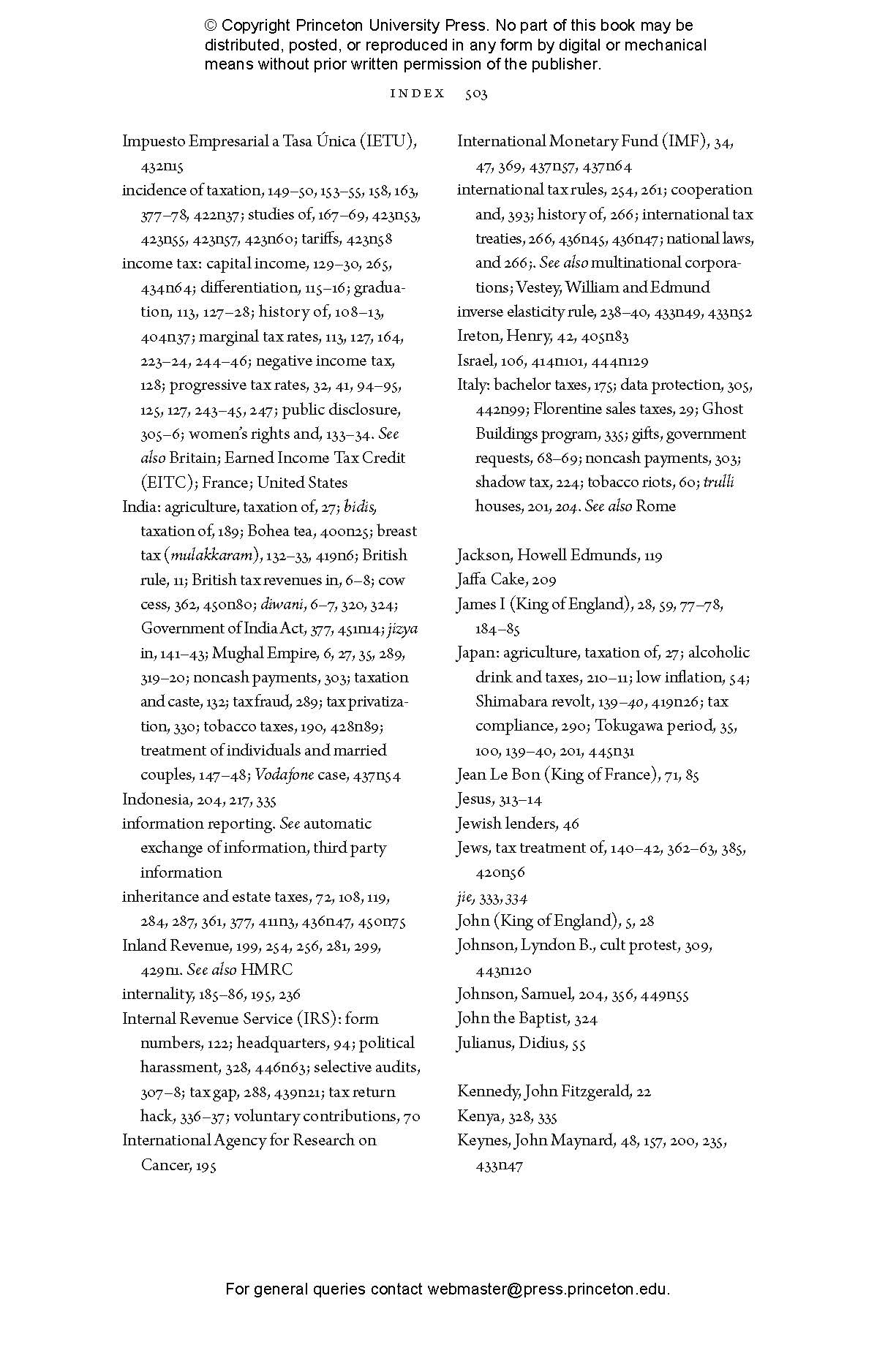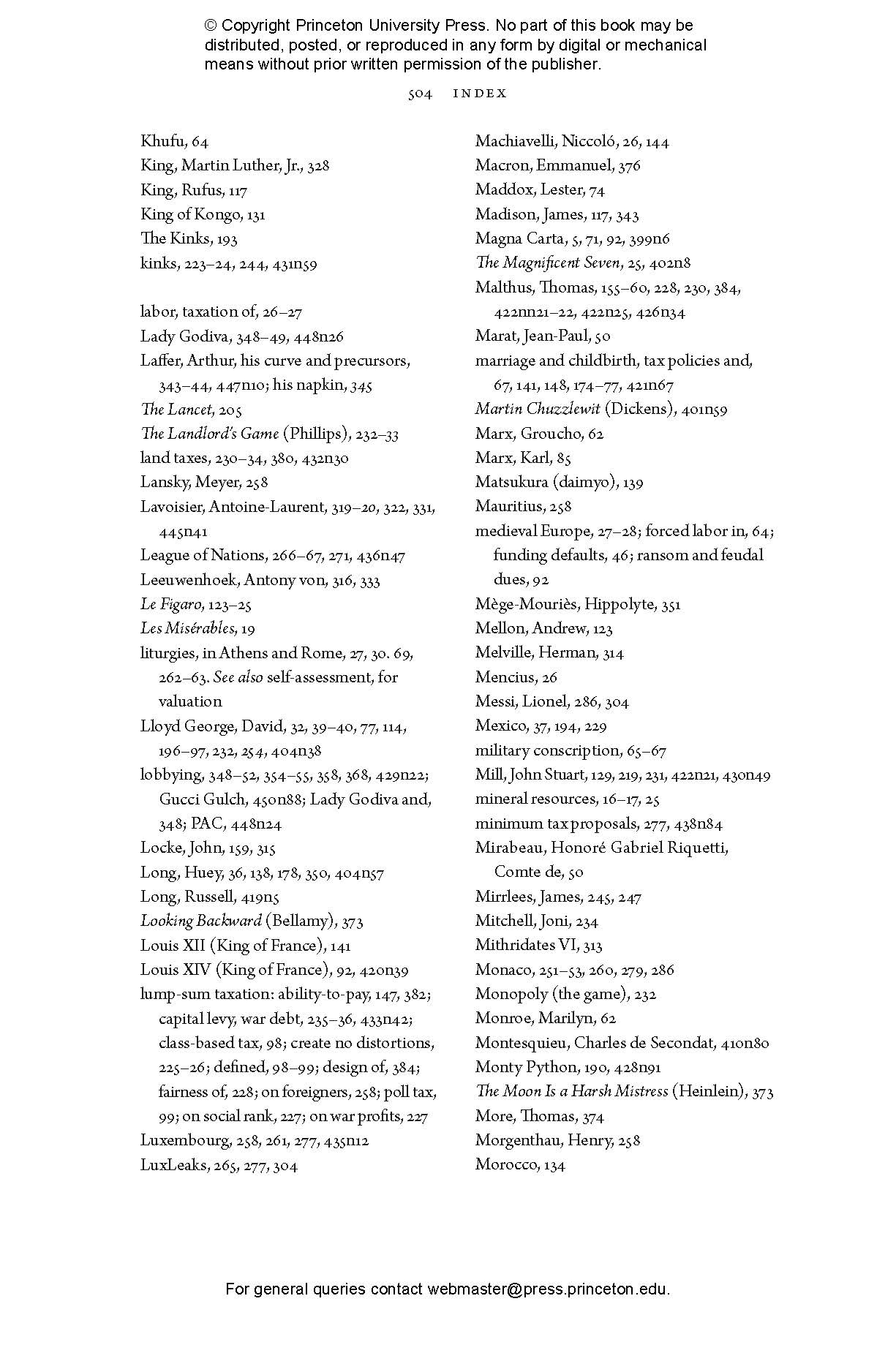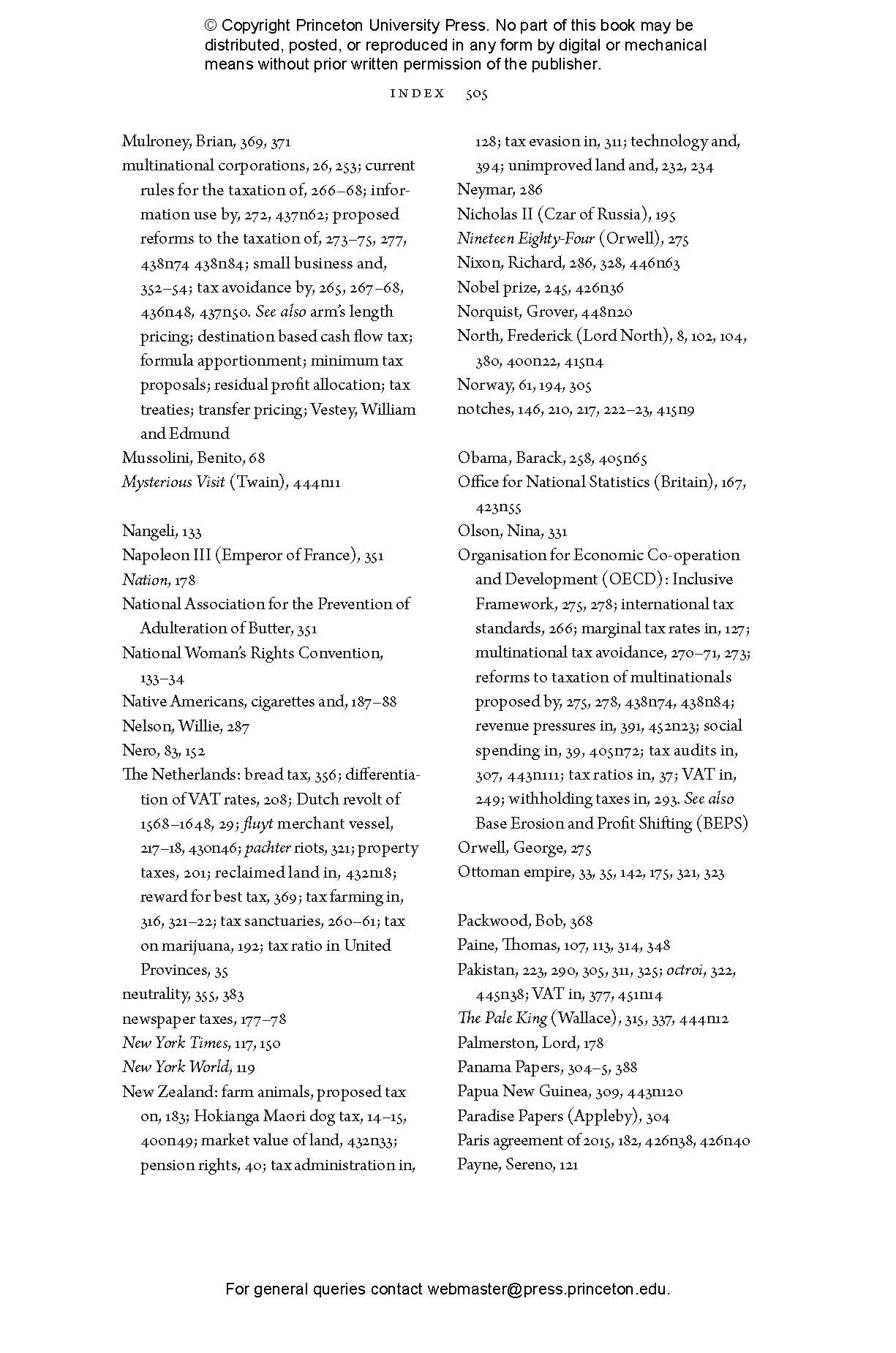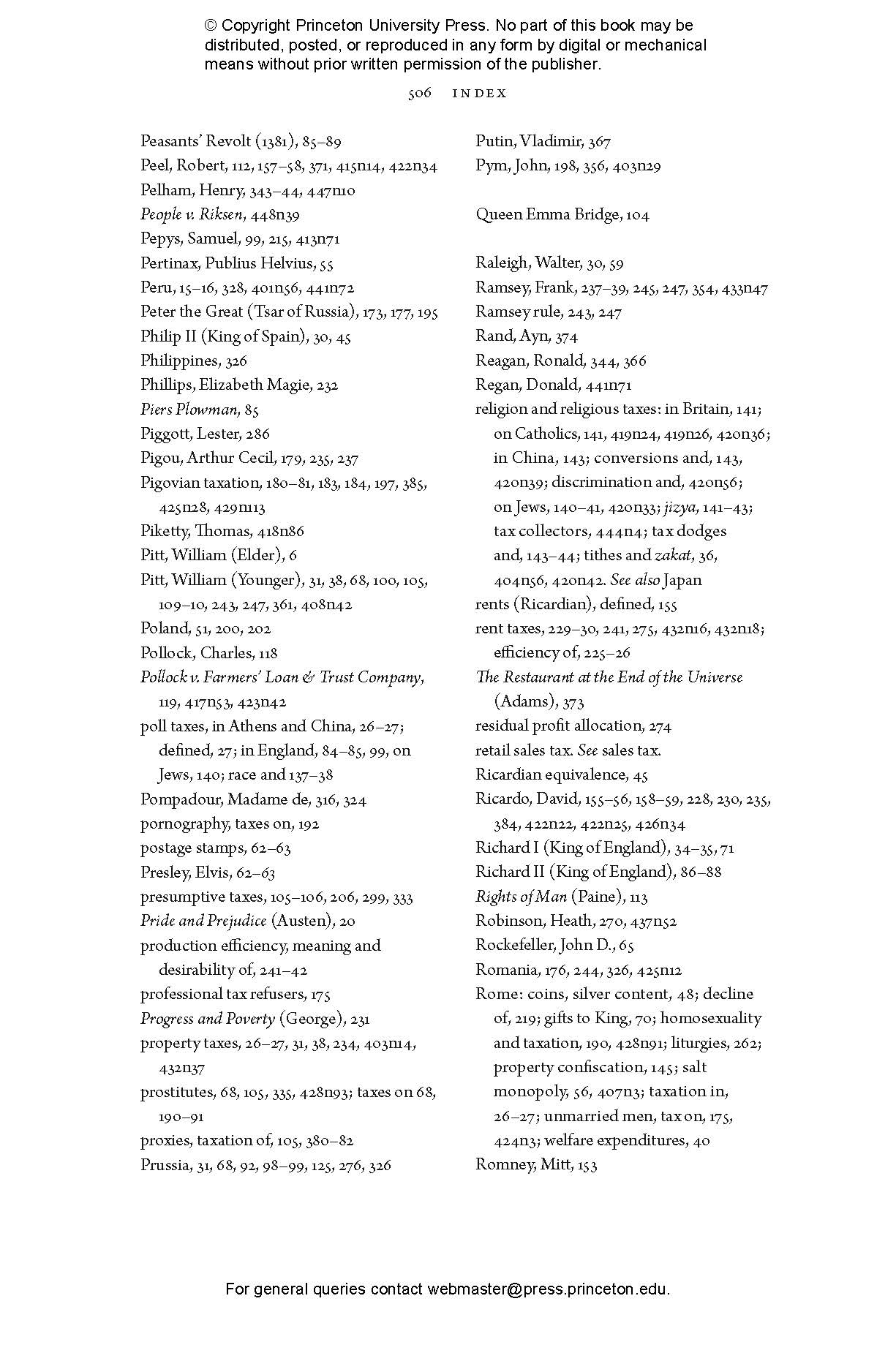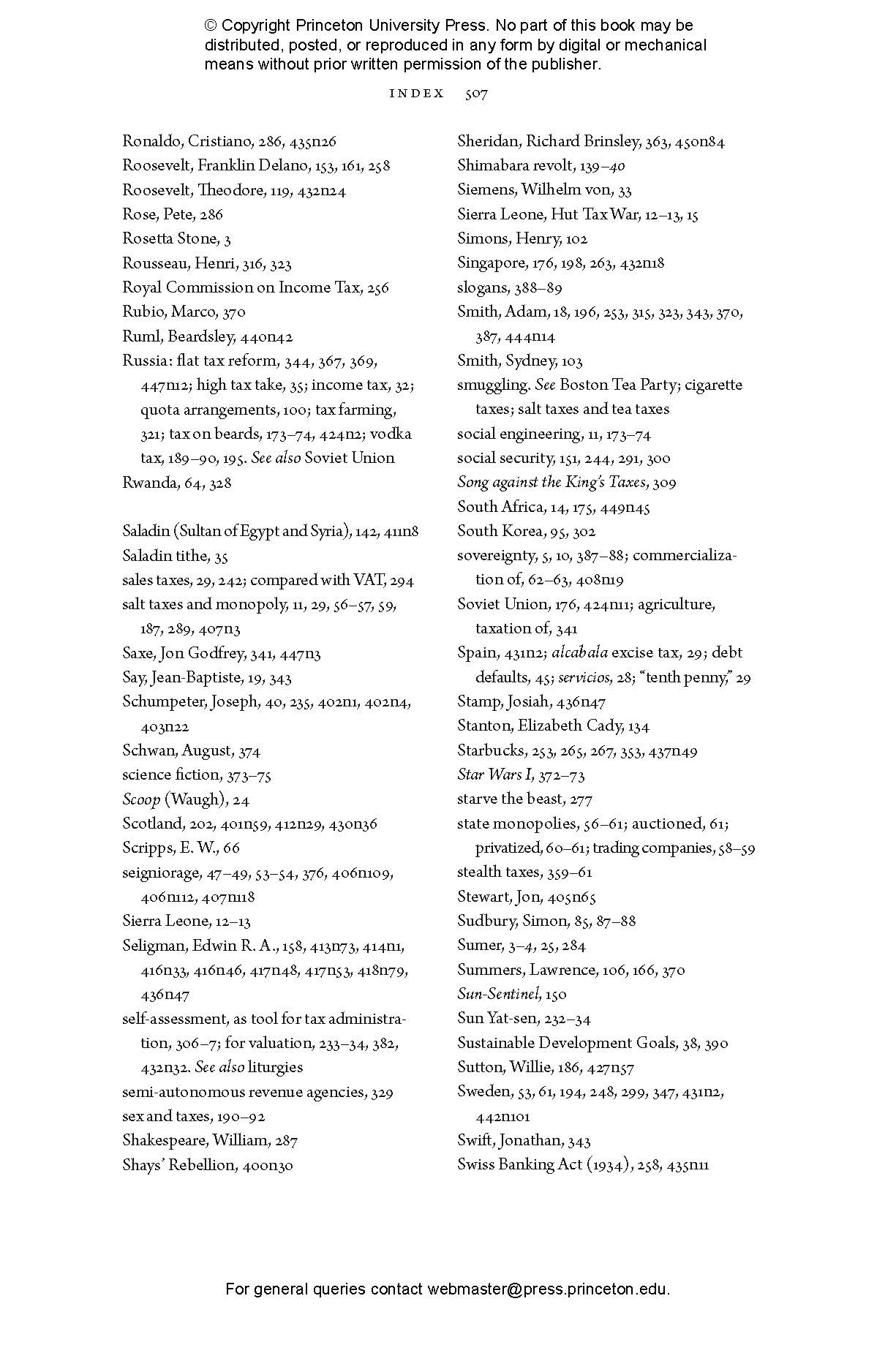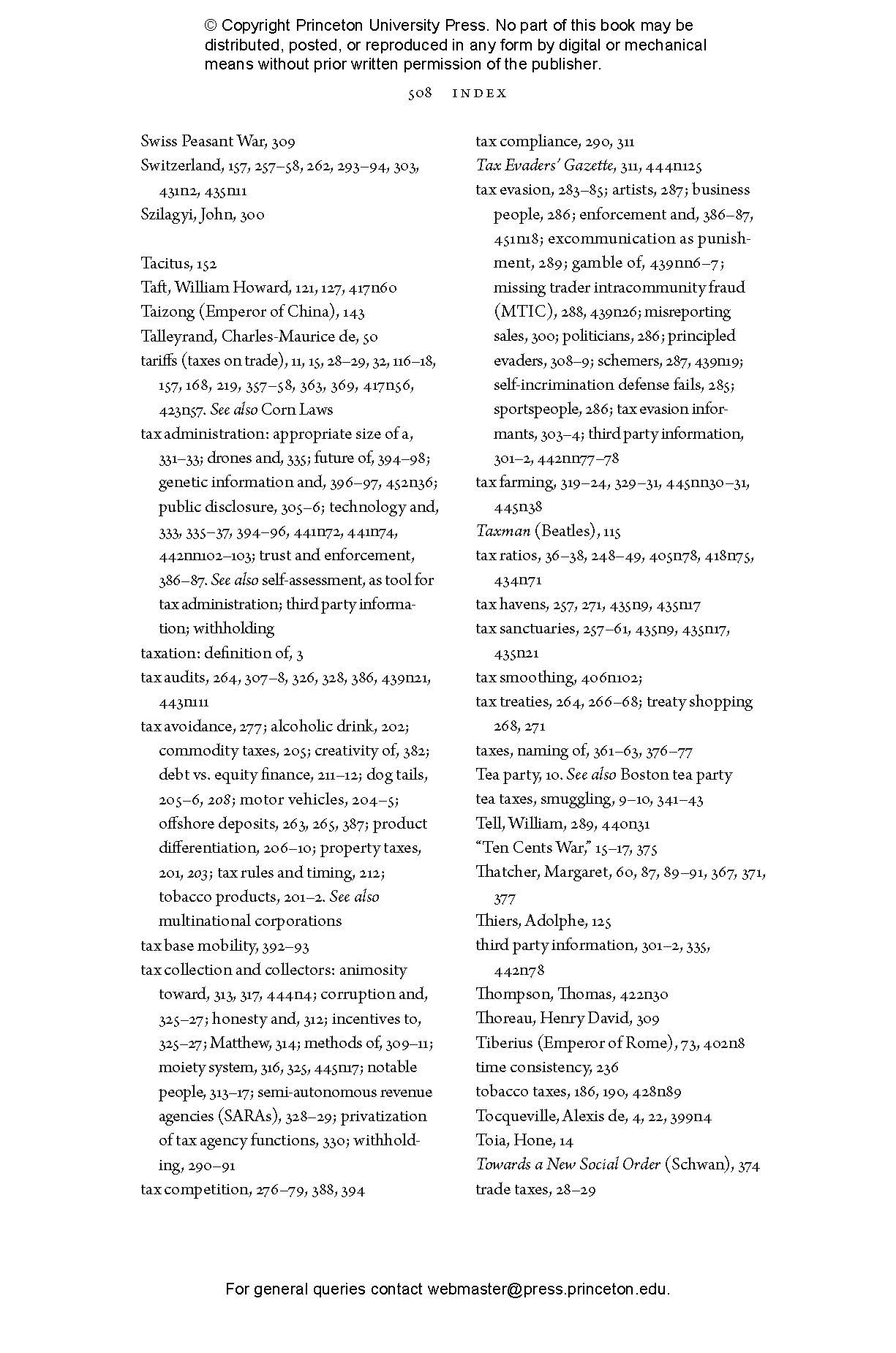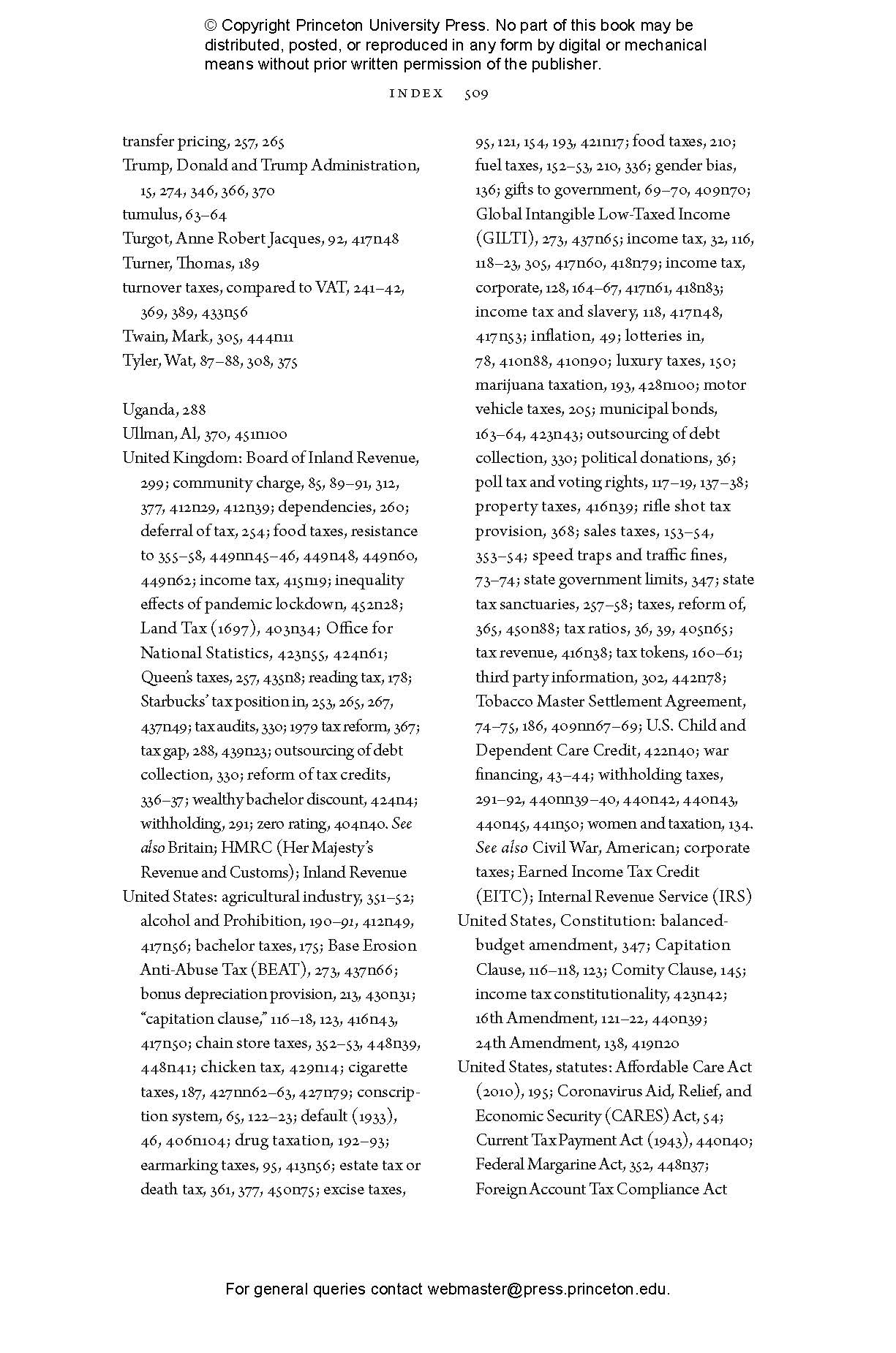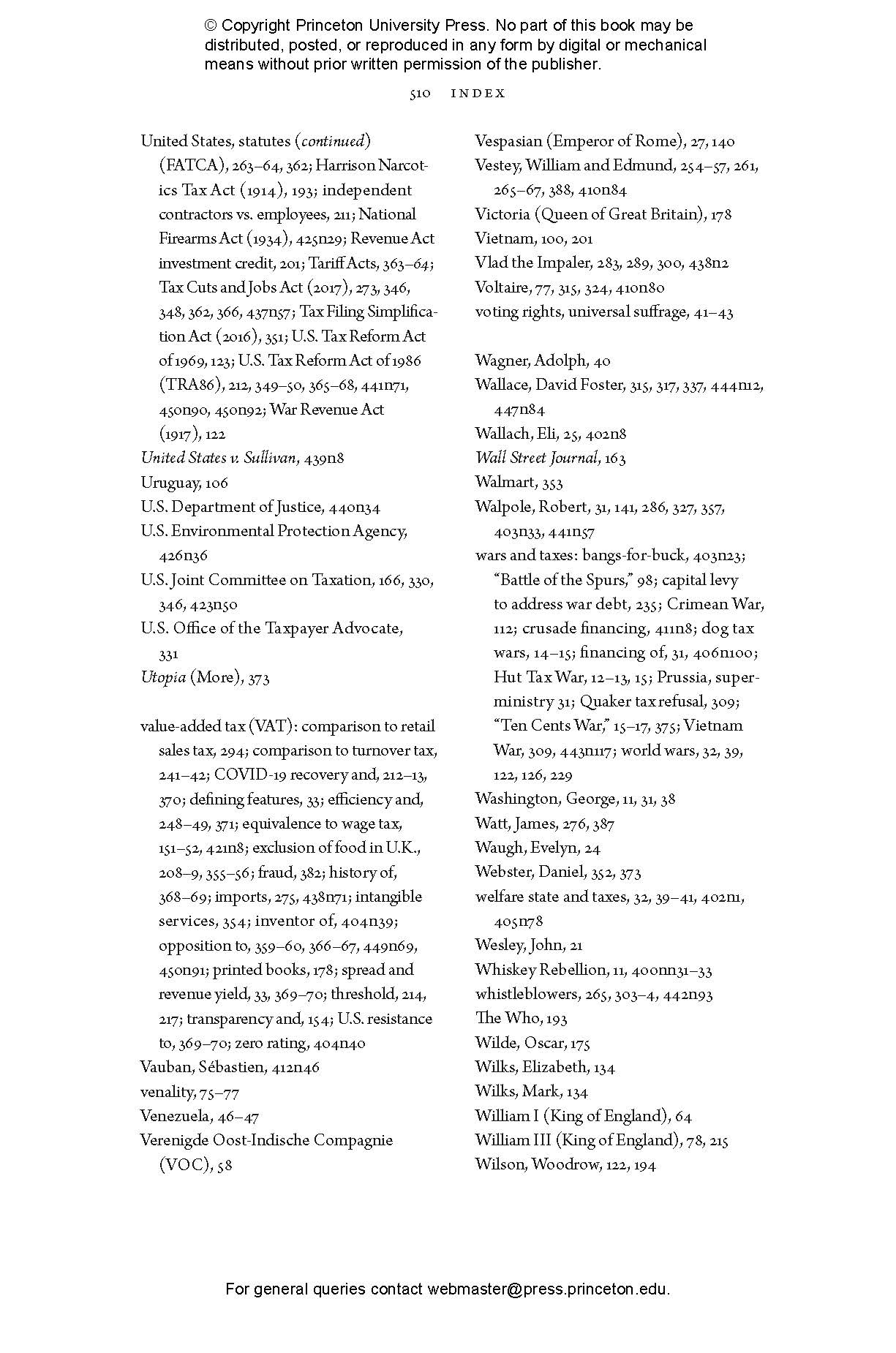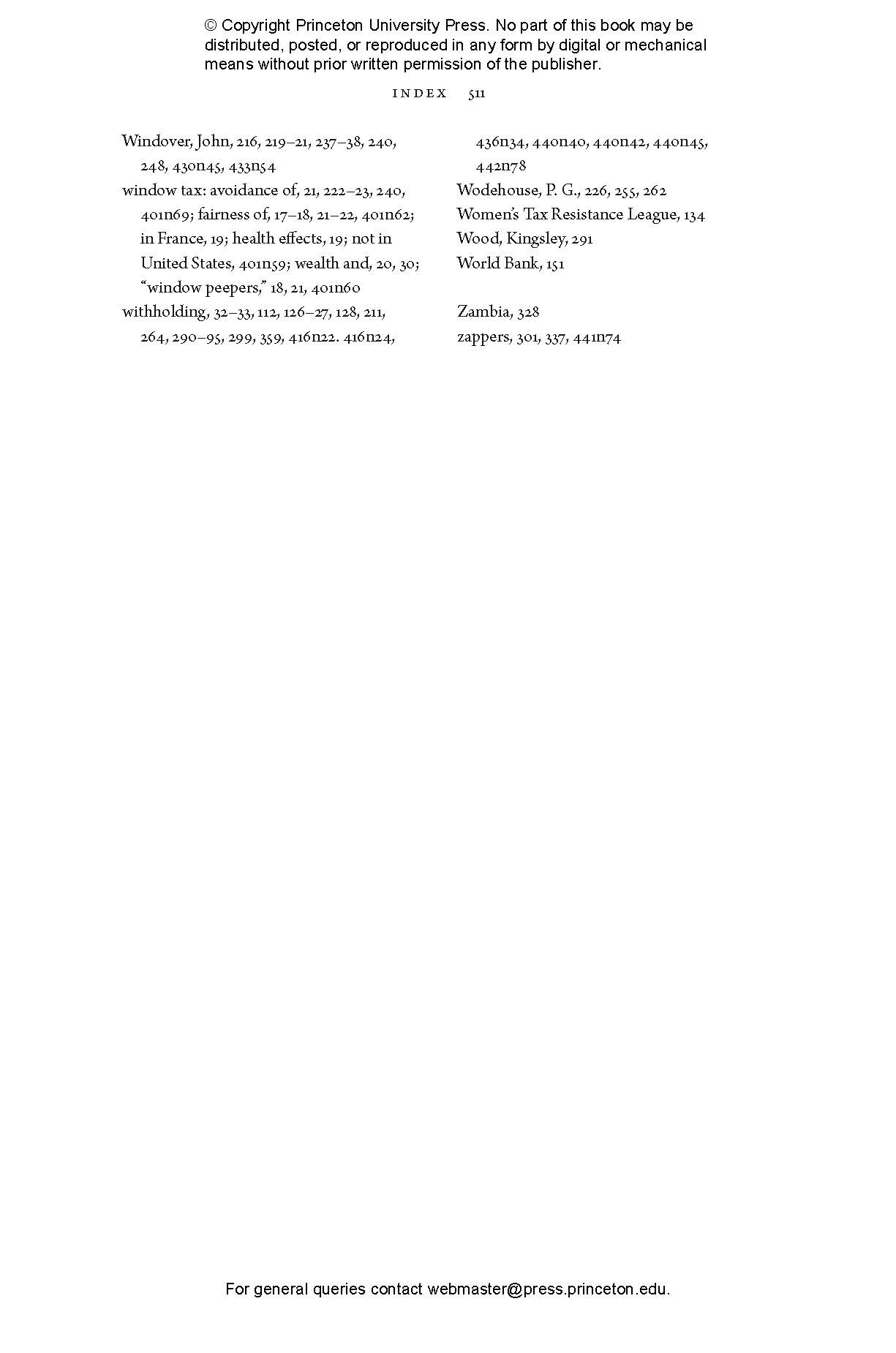Governments have always struggled to tax in ways that are effective and tolerably fair. Sometimes they fail grotesquely, as when, in 1898, the British ignited a rebellion in Sierra Leone by imposing a tax on huts—and, in repressing it, ended up burning the very huts they intended to tax. Sometimes they succeed astonishingly, as when, in eighteenth-century Britain, a cut in the tax on tea massively increased revenue. In this entertaining book, two leading authorities on taxation, Michael Keen and Joel Slemrod, provide a fascinating and informative tour through these and many other episodes in tax history, both preposterous and dramatic—from the plundering described by Herodotus and an Incan tax payable in lice to the (misremembered) Boston Tea Party and the scandals of the Panama Papers. Along the way, readers meet a colorful cast of tax rascals, and even a few tax heroes.
While it is hard to fathom the inspiration behind such taxes as one on ships that tended to make them sink, Keen and Slemrod show that yesterday’s tax systems have more in common with ours than we may think. Georgian England’s window tax now seems quaint, but was an ingenious way of judging wealth unobtrusively. And Tsar Peter the Great’s tax on beards aimed to induce the nobility to shave, much like today’s carbon taxes aim to slow global warming.
Rebellion, Rascals, and Revenue is a surprising and one-of-a-kind account of how history illuminates the perennial challenges and timeless principles of taxation—and how the past holds clues to solving the tax problems of today.
Awards and Recognition
- Winner of the Gold Medal in Business Reference, Axiom Business Book Awards
"It is hard to imagine a more timely—and entertaining—history."—Barry Eichengreen, Foreign Affairs
"An erudite yet good-humored history of taxation. . . . Reading about taxes, it turns out, is a lot more fun than paying them. That's a low bar, but Rebellions, Rascals and Revenue clears it with ease. Check with your accountant: The book may be tax-deductible."—Daniel Akst, Wall Street Journal
"Offers a historical precedent for almost any tax debate or controversy imaginable. . . . Keen and Slemrod have amassed the most remarkable collection of evidence to bolster and illuminate their case. . . . An invaluable primer to some of the underlying tensions behind contemporary political debate."—Chris Giles, Financial Times
"Societies throughout the ages have wrestled with the question of how to tax, who to tax, and how to make people pay. The stories that emerge are remarkable. In this highly enjoyable tour de force, Keen and Slemrod show how the travails of our ancestors can help us understand the problems we face today—and pass on a few eternal lessons. Prepare to read, learn, and enjoy!"—Christine Lagarde, President of the European Central Bank
"The main effect of this enjoyable gallop through state levies of the past is to expose the continuing oddities of how governments raise revenue today. . . . The tales of historic folly and wisdom breathe life into dry principles of tax theory."—Liam Proud, Reuters
"Amusing historical anecdotes. . . . Shed[s] light on how the modern-day tax system works—as well as its potential pitfalls."—Reed Tucker, New York Post
"A fascinating and often funny book. . . . The real skill of Keen and Slemrod is to explain not just the history of tax but (painlessly) the economic forces that shape and are shaped by it."—Frances Cairncross, Literary Review
"Michael Keen and Joel Slemrod’s book is wonderful and should be read by any student of tax. It is both entertaining and instructive. . . . Keen and Slemrod’s marvelous book is not an attempt to directly effectuate tax policy or to rewrite tax history. Instead, it is a very wise excursion by two highly experienced public finance economists into the past to better understand the present by comparing it to what was different, and to improve the future by learning from both past wisdom and past follies. Herodotus and Thucydides would have been delighted to read it."—Reuven S. Avi-Yonah, Tax Notes International
"Tax history resembles the warehouse in the final scene of the movie Raiders of the Lost Ark—an enormous, poorly lit jumble of unlabeled boxes, one of which may be hiding the answer to all the world’s tax problems. This new book by two leading tax analysts turns up the lights, organizes many of the boxes in an enlightening way, and presents the results with a style and flair that make the subject not only understandable but—and this may come as a surprise to many—actually fun to read. The authors may not have found the answer, but even the most experienced reader can learn something from this lively and informative book."—Richard Bird, Finance & Development
"It takes more than the entertainment of countless historical tax tales to produce a book on tax that actually pleases the reader. What makes this both so intriguing and worthwhile is how it draws out common threads of tax principles and practice that have underlain tax systems for thousands of years. . . . There is no way to do justice to this book in a few paragraphs."—Vox EU
"A new book on the history of taxes adds levity to, and piques interest in, a topic often with the allure of a root canal."—Joel Schlesinger, Winnipeg Free Press
"An entertaining, compelling, and well-researched book."—Simon Heffer, New Criterion
"A spry survey of taxes over the course of history. . . . It won’t ward off the April tax blues, but it does a fine job of explaining the hows and whys of taxation."—Kirkus Reviews
"There will likely be a tax-related anecdote (or two) that speaks to you directly in Keen and Slemrod's wonderfully comprehensive walk through the annals of taxation. . . . An immensely enjoyable and comprehensive look at the 'history' of taxation."—Frank G. Colella, New York Law Journal
"Keen and Slemrod’s book took me on a romp through 4,000 years tax history. It’s a perfect gift for your CPA, or anyone seeking untoppable zingers for the next faculty club meeting."—George Spencer, Notre Dame Magazine
"Unusual and stimulating. . . .a major accomplishment (with a stunning cover) that supplements standard textbooks on tax design and tax policy and provides a lively survey and exhaustive historical analysis of these frequently dry topics."—Richard Allen, Market Screener
"Who says the study of taxation can’t be fun? Most of you, I would expect. But Michael Keen, deputy director of the Fiscal Affairs Department of the IMF, and Joel Slemrod, the Paul W. McCracken Collegiate Professor of Business Economics and Public Policy at Michigan’s Stephen M. Ross School of Business, are out to prove you wrong. Their delightful (you read that right) new book ... is a sprawling compendium of (mostly weird) anecdotes that neatly illustrate the principles of the economics of tax policy."—Peter Passell, Milken Institute Review
"At first glance, a book on the history of taxation seems like something only an accountant could love. But as it turns out, Rebellion, Rascals, and Revenue is an enjoyable rompt, a fascinating mix of stories and insights."—The Australian
"A delightful book."—Michael Taylor, San Antonio Express News
"With their book, Rebellions, Rascals, and Revenue: Tax Follies and Wisdom Through the Ages!, Michael Keen and Joel Slemrod definitively show that taxes and tax policy are anything but 'dull, dull, dull.' With an engaging writing style (especially for fans of puns and other word play), they provide a selective history of tax policy and administration that highlights odd policy choices and unusual behavioral responses to policies."—National Tax Journal
"A masterful compendium of not just fiscal history, but social history throughout the ages."—The Independent Review
“Whoever said taxes were boring? They are not only the price of civilization, as U.S. Supreme Court Justice Oliver Wendell Holmes Jr. famously remarked; Keen and Slemrod show that they are also the source of many fantastic stories. This book is in equal measure entertaining and instructive.”—Lawrence H. Summers, Harvard University
“The history of societies—from ancient to modern—is revealed by their tax systems. In this highly entertaining and informative account, Keen and Slemrod tell the fascinating stories behind the taxes that did and did not work.”—Mervyn King, former Governor of the Bank of England
